
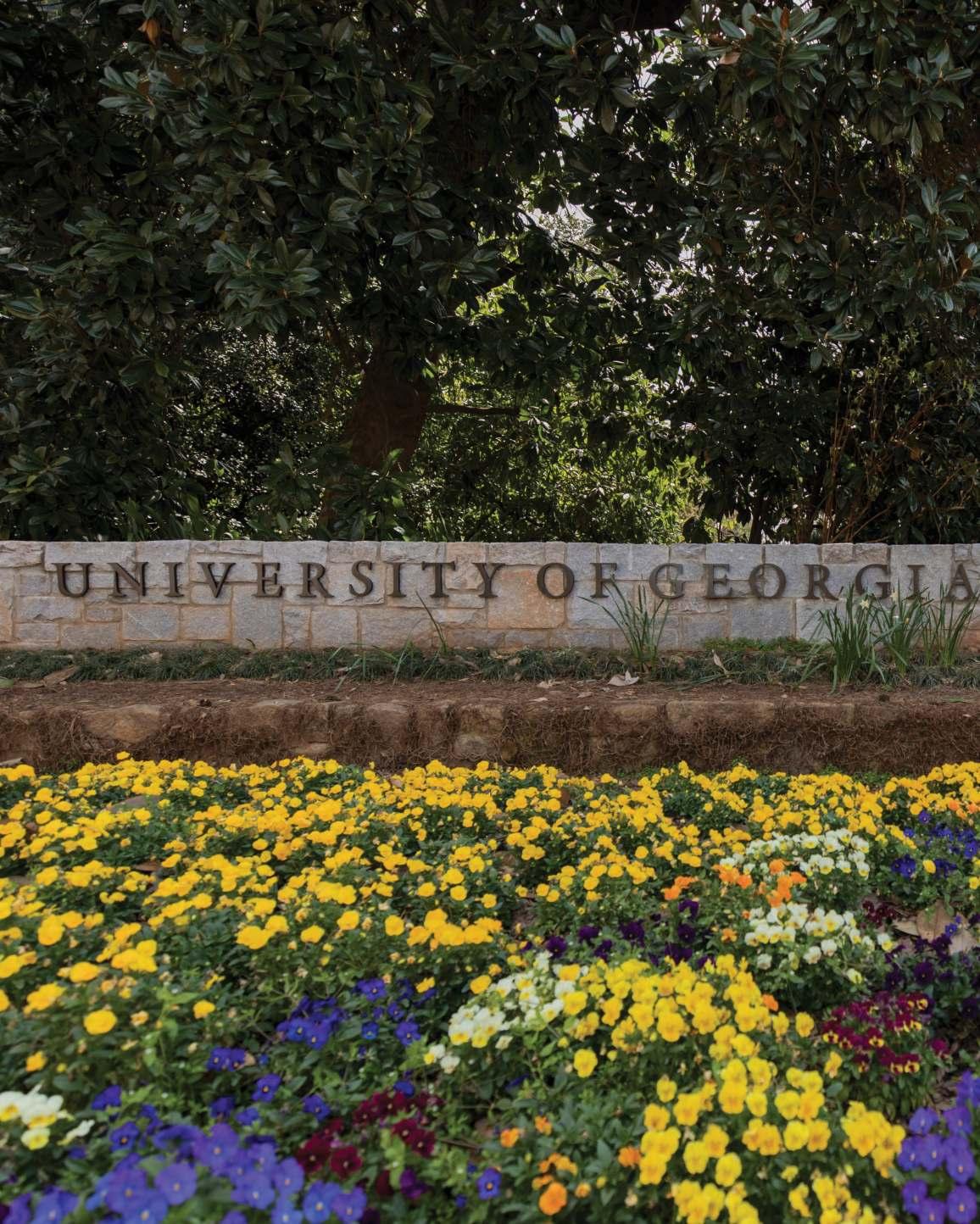
Whether working in a law firm, clerkship, government or public interest position, your degree will translate across professions and state lines.
Peter B. “Bo” Rutledge Dean & Talmadge Chair of Law




Whether working in a law firm, clerkship, government or public interest position, your degree will translate across professions and state lines.
Peter B. “Bo” Rutledge Dean & Talmadge Chair of Law

As one of the nation’s best returns on investment in legal education, we strive daily to redefine what it means to be a great national public law school – offering a world-class, hands-on, purpose-driven educational experience with an unflinching commitment to accessibility and affordability.
What does this mean for you?
• It means the opportunity to participate in 18 clinical and experiential learning programs designed to equip you with the skills demanded by today’s legal employers.
• It means learning from professors, judges, corporate executives and government officials working – and teaching – at the cutting edge of their fields.
• It means joining a law school with a near-perfect Ultimate Bar Passage Rate (99.48% of the Class of 2021 graduates who sat for the bar passed within two years of graduation).
• It means 100% of our first-generation college graduates and veterans receive financial assistance.
• It means that more than half of our students did not borrow for their legal education last year.
• In short, it means a laser focus on helping you obtain a job, pass the bar and minimize debt.
UGA Law is currently the #1 “Best Value Law School” in the nation (a position we have held for four of the last six years), and we proudly boast the lowest tuition of those ranked among the top-25 law schools in the country. We commit to you that when you graduate, you can make your professional choices based on your passions, not your wallet. Whether working in a law firm, clerkship, government or public interest position, your degree will translate across professions and state lines.
Prepare: Rigorous training – in the classroom and courtroom – prepares you for the demands of legal practice. Over the last five years, law students argued before seven different federal appellate courts and secured several victories. Our advocacy teams are a national force and average winning five national/regional championships each year. Added to that, students in our clinics help represent live clients and are making a difference in their lives – whether to secure a protective order, to obtain a remedy for abuse survivors or to attain U.S. citizenship.
Connect: We are a community of authentic support. This means viewing your education not as a transaction but as a financial and emotional investment. We take that charge seriously. That’s why we’ve invested so heavily in our mentorship program, which can match you with a four-person mentorship team, including an alumnus/ alumna or legal practitioner based on your background and interests. Mentors stay in touch with their mentees
throughout the academic year offering advice on matters such as course selection and job searches.
Our ironclad commitment to connect you with people who will make a difference in your professional life extends beyond the mentorship program. First-generation college graduates will find community in our First-Generation Students Association, and veterans will benefit from the Butler Commitment. For those interested in employment out of state, the Corsair Law Society provides an invaluable platform for building your networks. For those seeking government, judicial or public interest work, the School of Law offers an array of summer stipends and grants. We have awarded more than $1.4 million over the last five years thanks to the generous support of our graduates and friends.
Lead: We are a community of leaders. Current and former government officials – from judges to deputy attorneys general – form a regular part of academic life at UGA and serve in various capacities like Jurists in Residence or guest lecturers. During the last academic year, more than 24 judges taught in our classrooms, delivered lectures and judged moot courts. It is not unusual to find yourself in a roundtable discussion with those who have been on the front lines in the legal community – training you how to lead. That commitment translates into outcomes.
Approximately 20% of the Class of 2023 secured federal and state judicial clerkships, and the School of Law currently ranks among the top 11 law schools in the nation for federal clerkships.
These are just a few ways our law school community strives to be the nation’s best return on investment in legal education and works tirelessly to provide a lodestar for redefining what it means to be a great national law school. We invite you to learn more about UGA Law in the pages that follow, through a virtual tour on our website, a scan of our social media or a campus visit.
Sincerely,

Peter B. “Bo” Rutledge Dean & Talmadge Chair of Law www.law.uga.edu/profile/peter-b-bo-rutledge
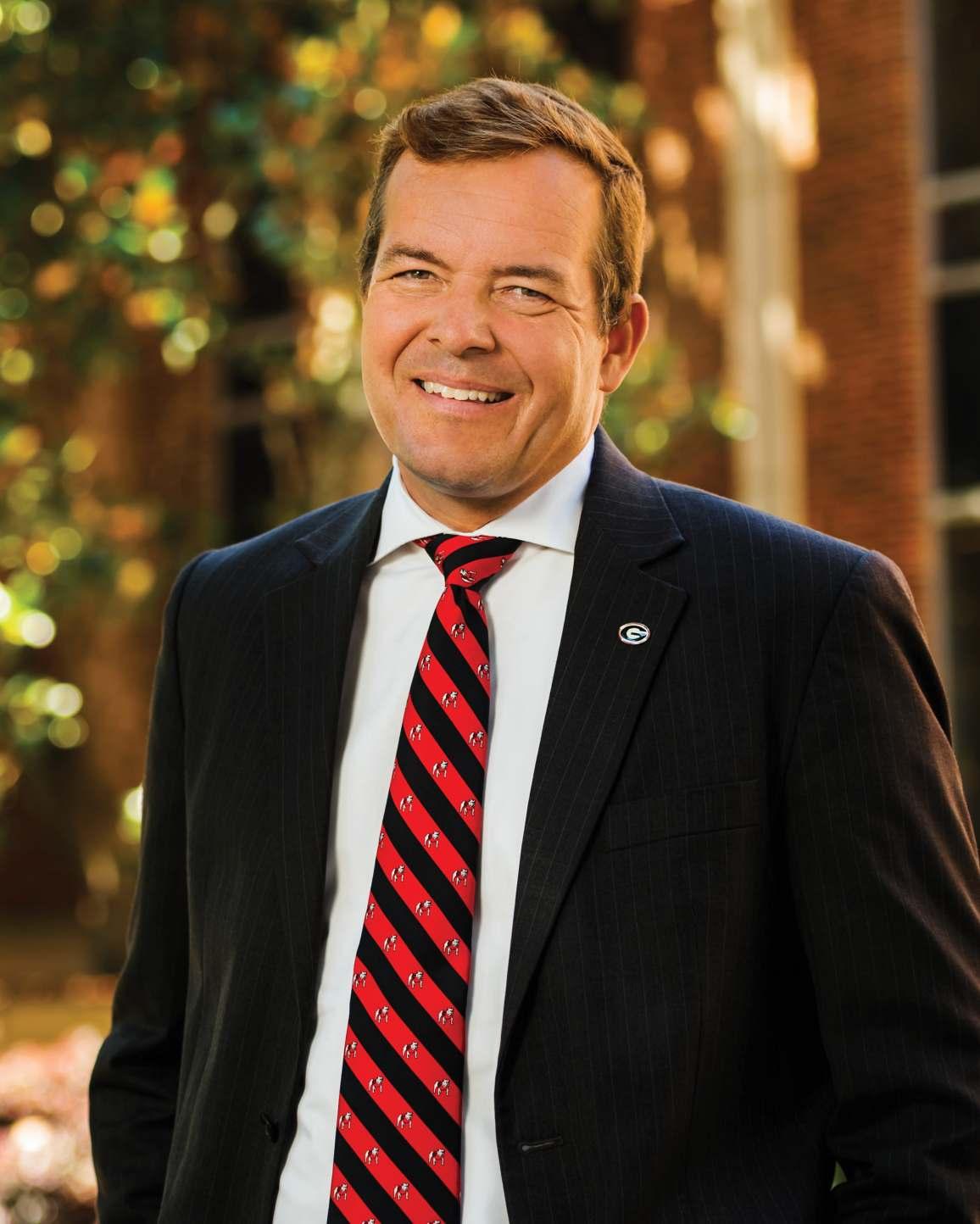
While some law schools emphasize either faculty scholarship or teaching, the University of Georgia School of Law faculty balances the two, firmly believing that scholarly expertise enhances classroom teaching.
The varied and impressive backgrounds of our faculty members bolster our dynamic community of learning and strengthen our curriculum. Professors maintain an open-door policy; they are available to answer students’ questions about academic matters, offer career advice and guidance, and serve as mentors. Here you will find faculty who care about you, who take time to get to know you, and who go the extra mile for you.
The University of Georgia School of Law is a national law school with a personal touch.
Our Faculty Includes:
• Former judicial clerks for the U.S. Supreme Court and other federal and state courts
• A winner of the American Law Institute Young Scholars Medal
• Recipients of the Meigs Award, UGA’s highest honor for teaching excellence
• Fulbright Scholars
• Consultants to foreign governments and international policymaking bodies
• Federal Judges and Supreme Court of Georgia Justices
• A former Deputy Attorney General
• Former and current partners at national law firms
The Jurist in Residence program enables one or more Article III judges to spend a period of residence at the School of Law each year. Our law students benefit greatly from the unique opportunity to learn from federal judges in a series of mini-courses.
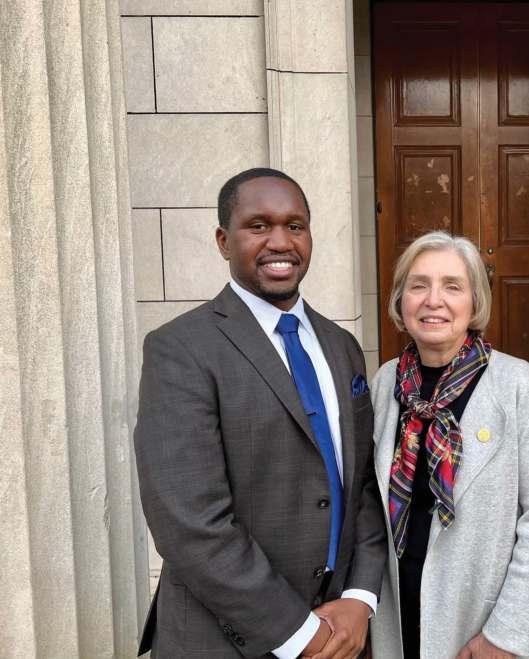
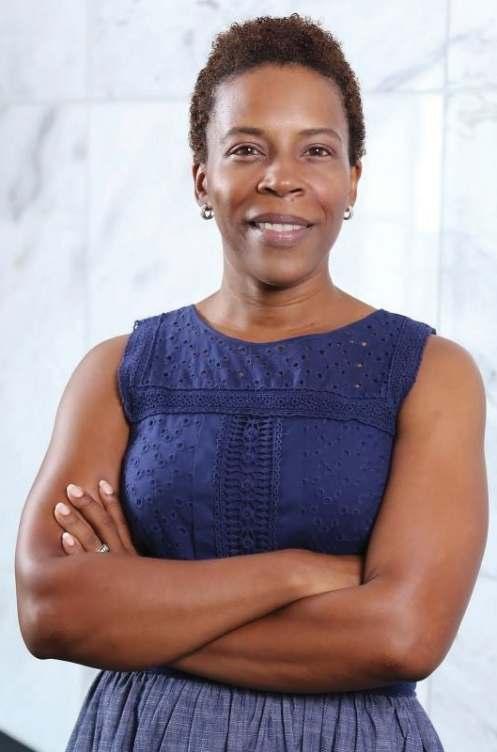
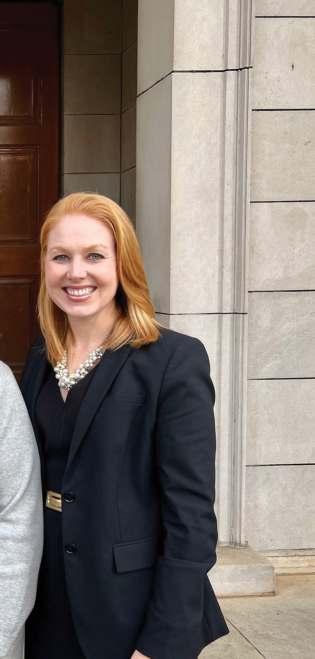
“Being a professor here at the School of Law combines the best of all worlds: the chance to shape a new generation of talented lawyers, the luxury to research socio-legal issues in depth, and the opportunity to serve my community. Our students are an invaluable part of all that I do. Their energy, intellect, and dedication have enriched my work in countless ways, and the relationships I have formed with them are priceless.”
Associate Dean for Academic Affairs
John Byrd Martin Chair of Law www.law.uga.edu/profile/andrea-l-dennis
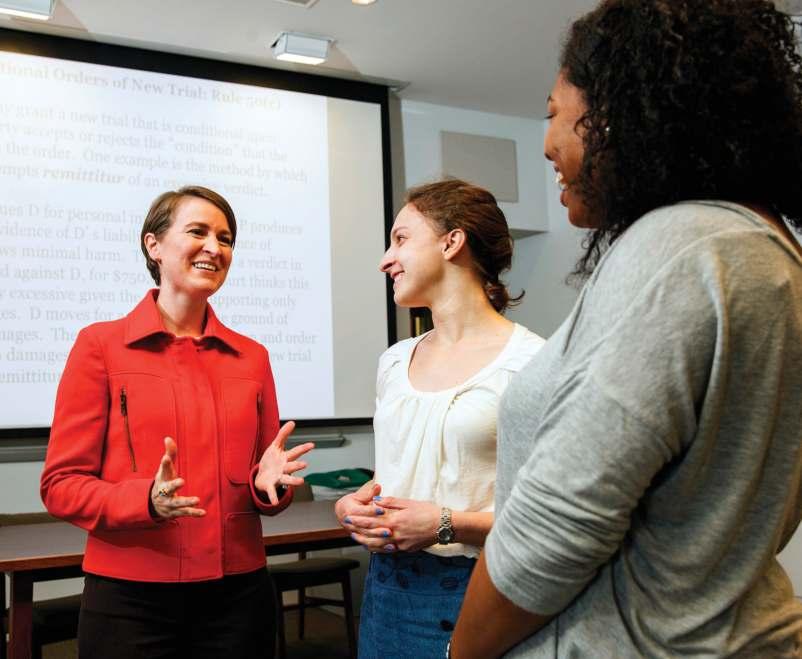
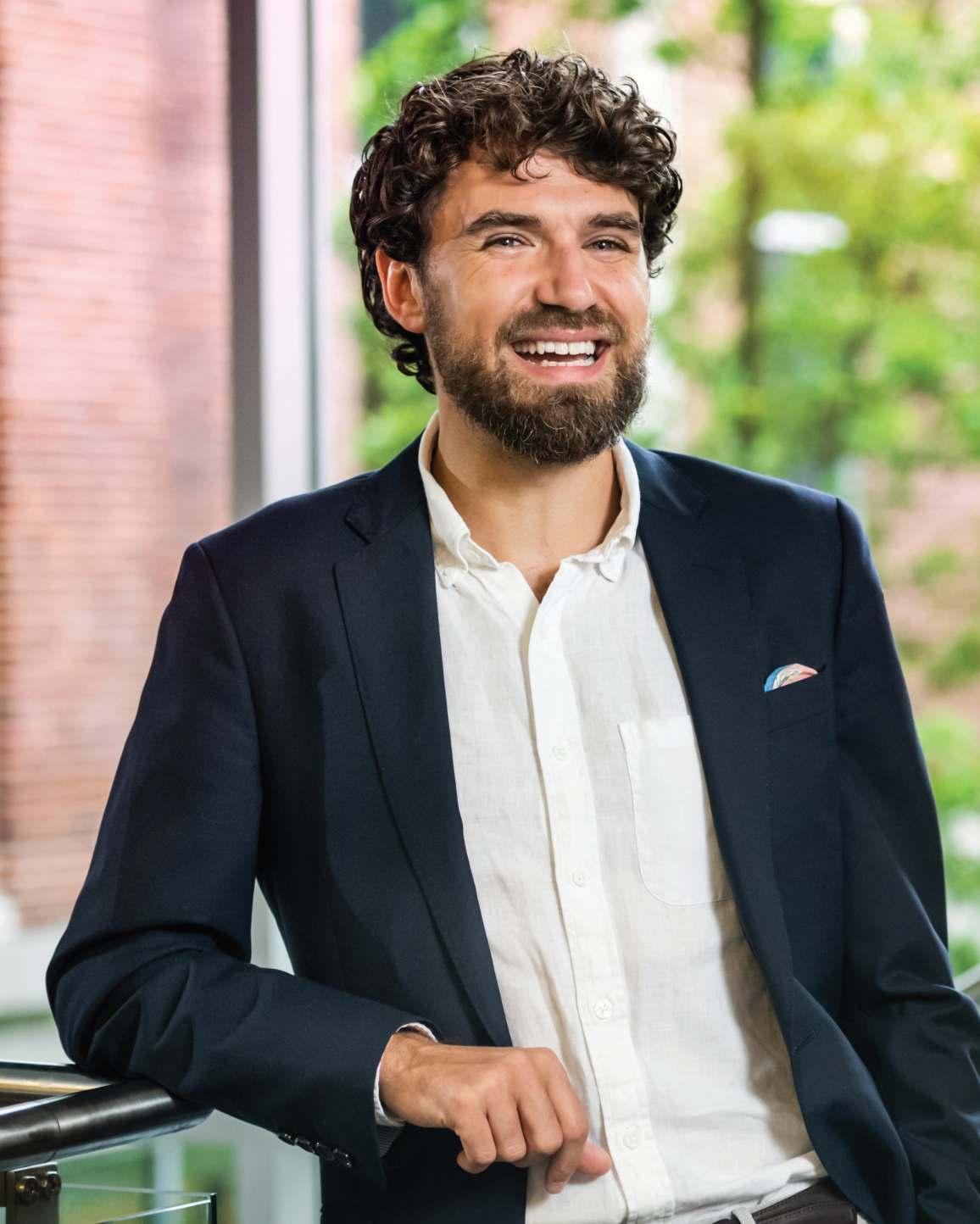

How do UGA Law faculty members help to ensure student success?
We’re a community that really cares about teaching. Since I joined the faculty, I’ve found that I’m just as likely to talk with my colleagues about innovations and challenges in pedagogy as about our research and writing. My sense is that this balance doesn’t always exist at other schools. Nobody’s forcing it upon us — it’s just part of our culture here. We treasure our roles as educators and mentors to our students, and we’re constantly pushing ourselves to improve.
Do you and your colleagues involve students in your research?
Absolutely! I have a small army of research assistants who provide invaluable support to my work. Sometimes I collaborate with students assigned to be my graduate assistants, sometimes I hire students with particular expertise for one-off projects, and sometimes I work with our team of Law Library student researchers. I even co-authored a book this year with a student who began as my research assistant! Depending on your time and interest, there are plenty of ways to get involved and gain this kind of research and writing experience while studying here.
What can a law student expect from you in the classroom?
Energy, compassion…and a funny accent? I grew up in the United Kingdom, so you’ll have to get used to the way I talk when I’m asking you questions! But aside from that quirk, my classroom involves constant dialogue. I love the back-and-forth engagement with my students. Contrary to what you might have heard, the Socratic method isn’t about hazing or scaring you, at least for me. Rather, it’s about collective learning, mutual respect, and critical thinking. But what happens if you don’t know the answer to my question? Will I be angry? No, absolutely not! So long as you’re prepared for class and willing to think through your uncertainties aloud with me, we’ll teach everyone together through our conversation.
What do you like about being part of the UGA Law community?
We tend to have students who really want to be here. That might sound trivial, but it makes a huge difference. Law school can be challenging in all sorts of ways, but our students seem to thrive and feel supported by our close-knit faculty and caring staff. For many of our students, UGA Law is where they’ve always wanted to go, while others might have decided to come after weighing their options. But no matter what led them here, they overwhelmingly appear to be happy and fulfilled. Our affordability is surely part of this story because students have greater freedom to pursue their genuine interests. As a professor, it makes my life so much richer to be surrounded by that kind of community.
LEARN MORE ABOUT PROFESSOR KADRI www.law.uga.edu/profile/thomas-e-kadri LEARN MORE ABOUT OUR FACULTY www.law.uga.edu/faculty-directory
The University of Georgia School of Law’s rigorous and diverse curriculum prepares you to excel at international law firms; Fortune 500 companies; renowned public interest organizations; and local, state, and national community service.
The foundational and cutting-edge curriculum at the University of Georgia School of Law is the vehicle to take you wherever you want to go.
The Juris Doctor is conferred upon the successful completion of the three-year, full-time program of legal study. Our J.D. graduates must successfully complete all first-year courses, satisfy 2 advanced writing requirements, complete the Law and Ethics of Lawyering course, 6 credit hours of practical skills course work, and earn a minimum of 89 semester credit hours.
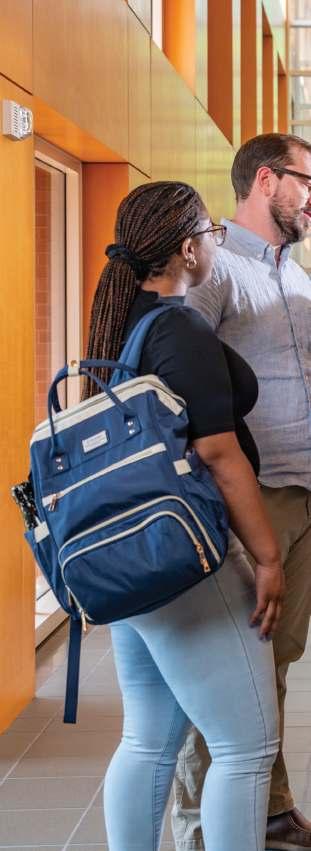
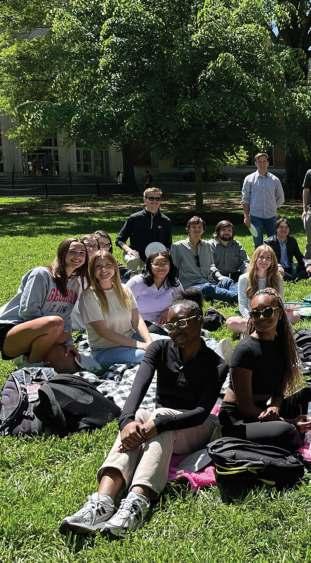
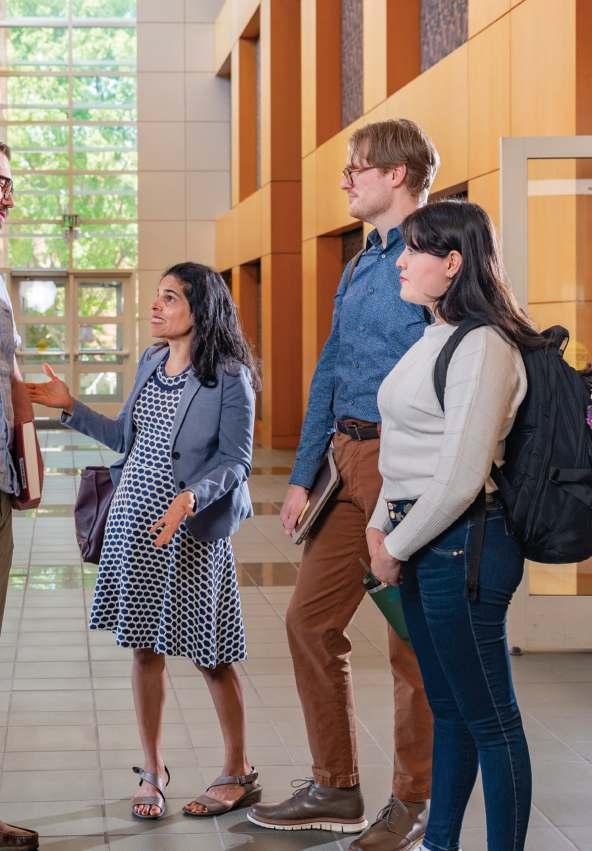
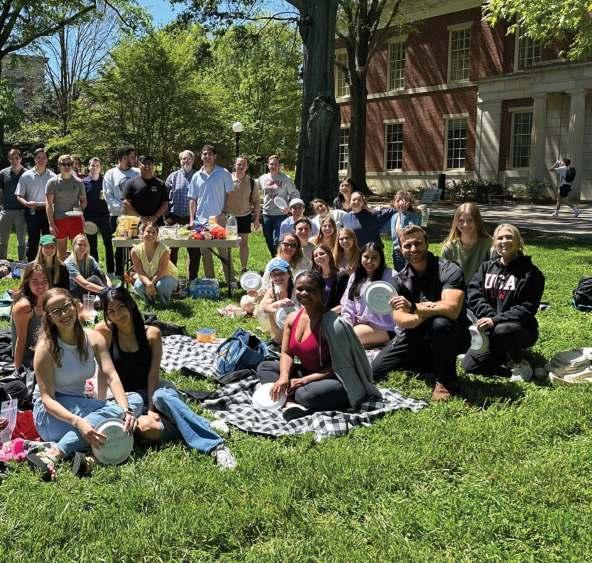
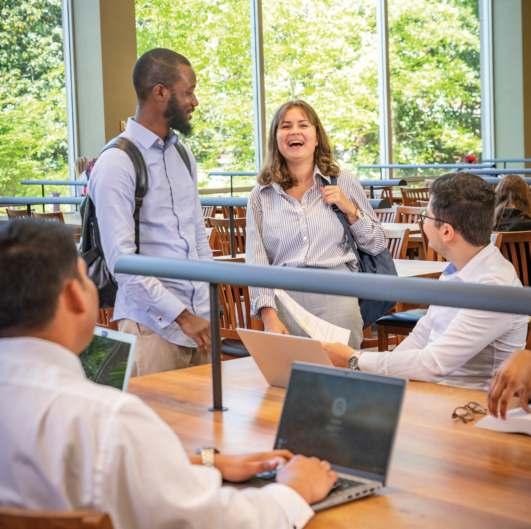
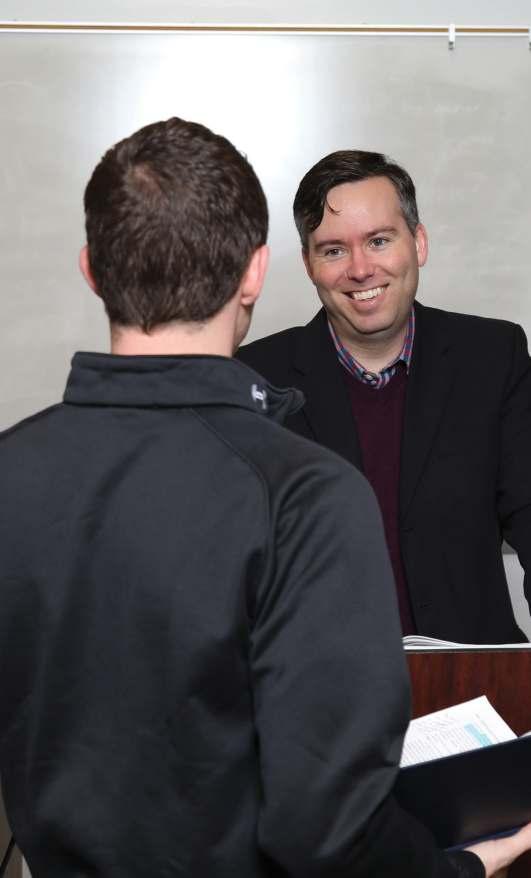
UNIVERSITY
*As of August 15, 2024
169 Median LSAT Score
17% First Generation College Graduates
25 States Represented
4 Countries Represented
3.91 Median GPA
32% Diverse Enrollment
77% Received Scholarships
71 Schools Represented
UNIVERSITY
SCHOOL OF LAW
*As of August 15, 2024
Total Applications
3,640
60% Women
Students Enrolled
178
Average Student Age
24
39% Men
1%
Students Outside the Gender Binary
The School of Law offers a broad and challenging curriculum of nearly 170 courses. Our second and thirdyear classes range in size from a seminar setting of 10–20 students to larger classes with up to approximately 80 students.
A COMPLETE LIST OF COURSES CAN BE FOUND AT www.law.uga.edu/course-offerings
The School of Law offers dual degree programs that enable our students to earn a J.D. and an additional degree in an accelerated fashion. We are one of the few schools in the nation offering both a three year J.D./M.B.A. and a J.D./ MAcc. Applicants must apply separately to each program.
• J.D./M.B.A. (3 or 4 years)
• J.D./MAcc. (3 years)
• J.D./M.H.P.
• J.D./M.P.A.
• J.D./M.P.H.
• J.D./M.S. Sport Management
• J.D./M.S. Financial Planning (3 years)
• J.D./M.S.W.
• J.D./M.U.P.D.
FOR MORE INFORMATION ON DUAL DEGREE PROGRAMS, VISIT www.law.uga.edu/dual-degrees
Students who wish to complement their law degrees with advanced degrees in other fields will find numerous opportunities at the law school. With 17 other schools and colleges at the University of Georgia, advanced degree opportunities abound. Students interested in concurrent degree programs should contact the graduate coordinator in the department, school or college offering the degree, in addition to the law school.
FOR MORE INFORMATION REGARDING CONCURRENT ENROLLMENT, VISIT www.law.uga.edu/concurrent-enrollment
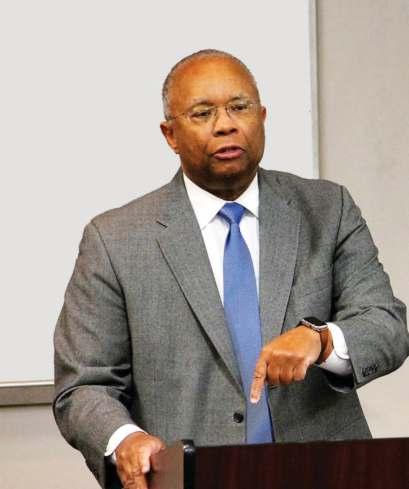
The University of Georgia School of Law Graduate Program in Alternative Dispute Resolution is an advanced credential in negotiation, mediation, and dispute resolution systems design that may be combined with the M.S.L. program, with a J.D., or as a stand-alone graduate certificate. (Admission is required for each program.)
Classes feature interaction with expert faculty in realtime and emphasize learning through experiences. The negotiation and dispute resolution skills that participants develop are invaluable to a diverse range of fields, from corporate careers to healthcare, from community organizations to law firms, and from public service to private enterprise.

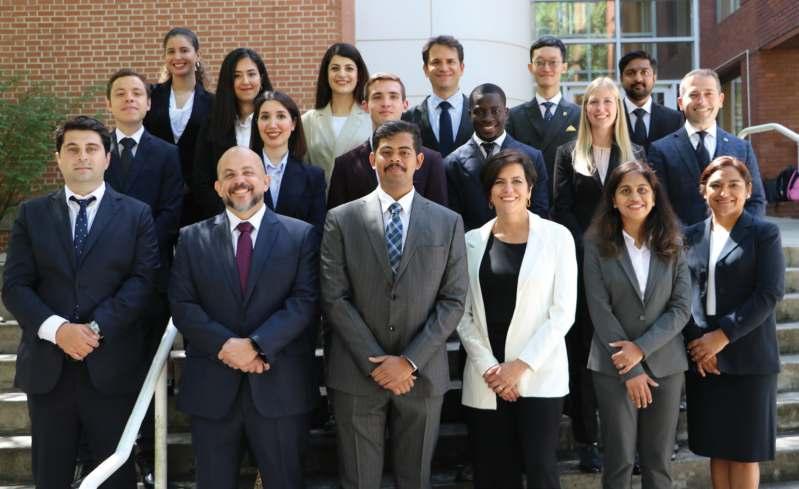
The Dean Rusk International Law Center is home to the Master of Laws (LL.M.) degree. Individuals who have earned a law degree equivalent to a J.D. or LL.B. from a foreign university are eligible to apply to study for an LL.M. degree. LL.M. students not only study side by side with a diverse group of highly qualified J.D. students, but also benefit from the close personal attention of our world-class faculty. After earning their degrees, they join a global network of graduates.
Our LL.M. degree is awarded upon successful completion, typically over one academic year, of 26 credit hours. Some LL.M. students will pursue a general course of study. Others will choose to focus on an area of concentration, for example: Public Institutions and the Law; Business Law and Dispute Settlement; Family Law and Migration Law; and Transnational,
The Master in the Study of Law (M.S.L.) is a graduate degree for professionals and recent college graduates who seek to increase their knowledge of the law in order to bolster their professional potential. Our program is designed for individuals who do not wish to become lawyers, but who want to enhance their expertise in particular areas of law that intersect with their professional interests. Our M.S.L. students create their own individualized program of study by selecting courses from the School of Law’s extensive
International and Comparative Law. Another area of concentration is Preparation for a U.S. Bar Exam, in which students undertake a curriculum designed to make them eligible to apply to sit for bar examinations in a number of U.S. States, including New York and Georgia.
An additional option for qualified students is the two year dual LL.M./M.B.A. degree. A student who is an LL.M. candidate at The University of Georgia may apply to transfer to the J.D. program. Accepted candidates may start the J.D. program after successful completion of the LL.M. degree.
FOR MORE INFORMATION ABOUT THE LL.M. PROGRAM, VISIT www.law.uga.edu/LLM
J.D. curriculum and take classes alongside J.D. students whose admissions credentials place them among the most highly qualified in the nation. The M.S.L. degree is awarded following the successful completion of 30 hours of course credit. The program offers both full-time (one year) and part-time (up to three years) track options, with classes offered in both Athens and online.
FOR MORE INFORMATION ABOUT THE M.S.L. PROGRAM, VISIT www.law.uga.edu/MSL
Employers recognize the quality education and practical skills the student body brings to the practice of law from the University of Georgia School of Law.
Our graduates have an outstanding record of success in the national market. From the moment a student joins our community, we take positive steps towards securing a rewarding legal career. Our Career Development Office (CDO) staff stands with a student through the entire journey. All of our career advisors have J.D. degrees and substantial practice experience. Our approach allowed the Class of 2021 to post the top placement rate among all law schools for high value legal jobs.* The Class of 2022 followed with another top five posting in JD Required employment. Approximately 20% of the class of 2023 secured federal and state judicial clerkships.
The CDO provides individualized advising and coaching to every student to ensure each student has their own specific strategy. We also provide an extensive array of professional development programs, including our 1L Training Program concurrent with our newly developed Lawyering class. These interactive programs begin during incoming student orientation and help students develop professional skills and habits students will use and advising programs with practicing attorneys on how to pursue to take advantage of the wide range of employment opportunities available to our students and graduates. Other programs for first year students include: a mock interview program, seminars taught by experts on job search skills like networking, and practicing attorneys providing advice on how to pursue many different practice specialties and employment settings. We implement a proactive national employer outreach effort designed to bring private and public employers to campus and post jobs to our job board.
*Full-time, long-term positions requiring bar passage or where a J.D. is an advantage.
TO LEARN MORE, VISIT www.law.uga.edu/career-development
“I
love being part of the UGA Law community. Our alumni, faculty, and staff are invested in the success of our students and collaborate with our office to ensure each graduate is equipped to succeed in the national legal marketplace.”
Tony Waller (J.D. ’93) Assistant Dean for Career Development
http://www.law.uga.edu/profile/tony-waller


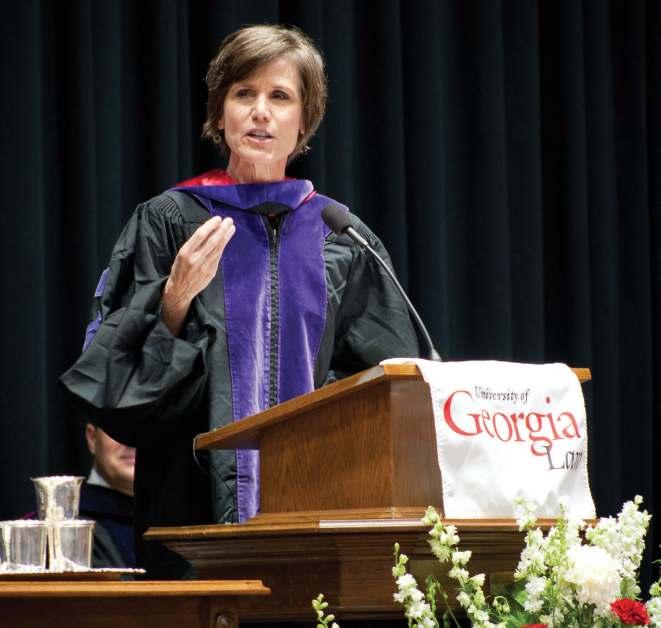
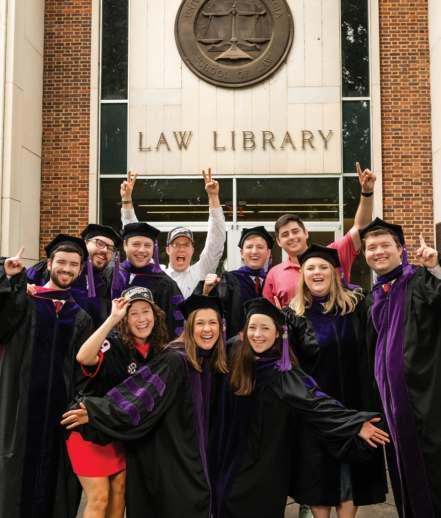
UNIVERSITY
SCHOOL
95%
WERE EMPLOYED IN LONG-TERM BAR PASSAGE REQUIRED/J.D. ADVANTAGE JOBS, or pursuing a graduate degree within 10 months of graduation
99.48% ULTIMATE BAR PASSAGE RATE for graduates who took the bar within 2 years of graduation
Graduates obtained work in 20 U.S. JURISDICTIONS
UNIVERSITY
SCHOOL OF LAW
53.8% Private Practice
27.2% in law firms larger than 250 attorneys
19.7% Judicial Clerkships
8.7% Government
5.8% Public Interest
5.8% Business/Industry
Our students hone essential legal abilities through hands-on service learning in one of the School of Law’s 18 experiential learning programs.
With 18 civil and criminal law programs and a wide range of practice areas, our students have the chance to:
• Advocate in federal and state courts thoughout the nation
• Negotiate deals and draft documents
• Represent individuals, businesses, communities, and agencies
• Work for judges and as mediators to resolve disputes
• Pursue a passion for public service
“The law school’s diverse clinical and experiential learning programs give our students the opportunity to develop real-world lawyering skills while making a meaningful difference in the lives of underrepresented individuals and communities.”
Jason A. Cade
Associate Dean for Clinical Programs and Experiential Learning, J. Alton Hosch Professor of Law, Community Health Law Partnership Clinic Director www.law.uga.edu/profile/jason-cade
law.uga.edu
law.uga.edu



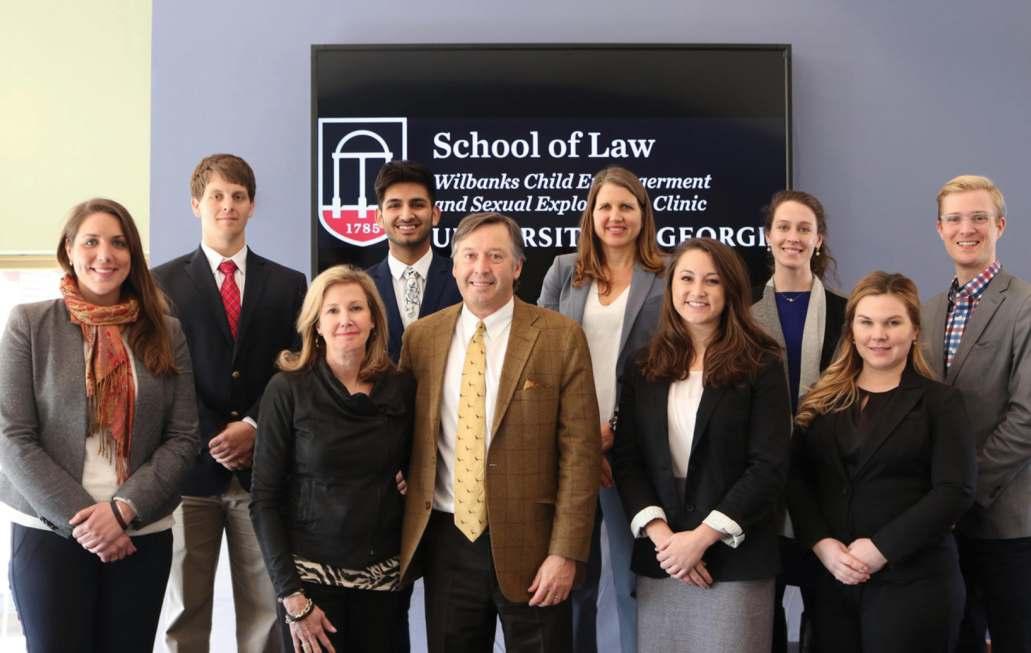
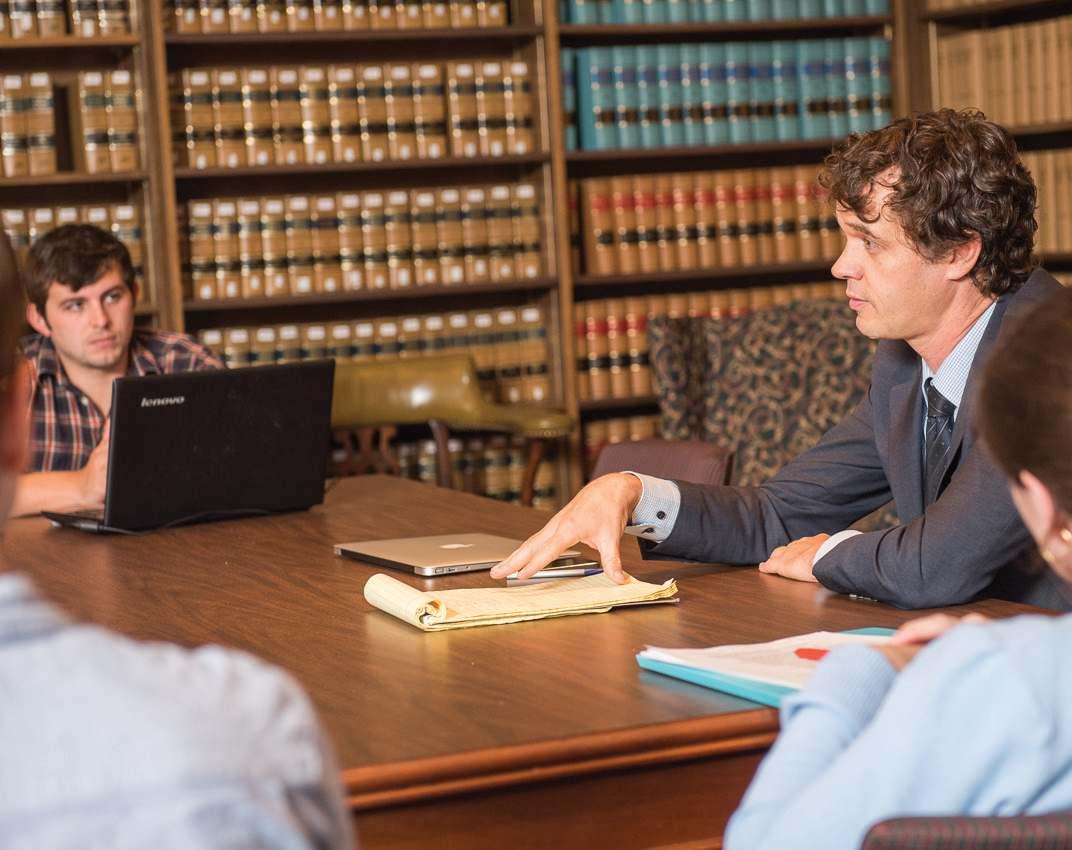
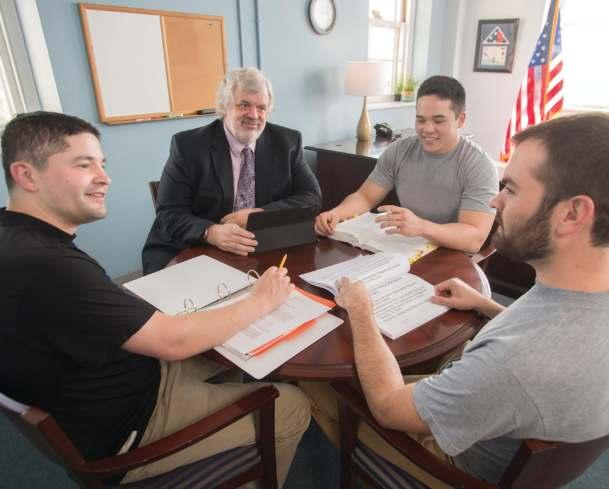
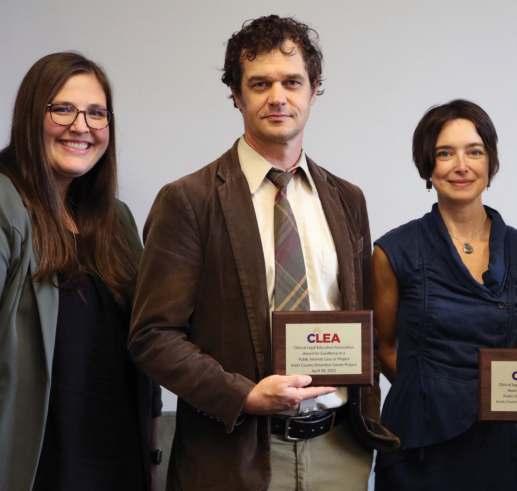

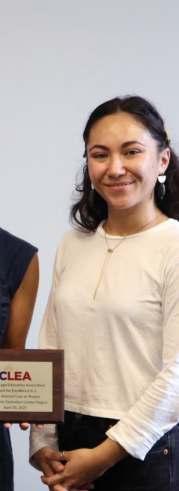
Programs Include:
• Appellate Litigation Clinic
• Atlanta Semester in Practice Program
• Business Law Clinic
• Capital Assistance Project
• Civil Externship
• Community Health Law Partnership Clinic
• Corporate Counsel Externship
• Criminal Defense Practicum
• D.C. Semester in Practice Program
TO LEARN MORE, VISIT
• First Amendment Clinic
• Jane W. Wilson Family Justice Clinic
• Land Conservation Clinic
• Mediation Clinic
• Practicum in Animal Welfare Skills
• Prosecutorial Justice Program
• Public Interest Practicum
• Veterans Legal Clinic
• The Wilbanks Child Endangerment and Sexual Exploitation (CEASE) Clinic
www.law.uga.edu/clinics-externships-and-experiential-learning-programs
The law school’s Atlanta & Washington, D.C. Semester in Practice programs allow second- and third-year law students to receive course credit while living and working in major urban areas that offer active job markets for graduates.
The full-time experience provides our students a fuller encounter with law practice, enhancing opportunities for personal and professional development. Placements include a wide range of offerings, including federal, state and local government agencies, private non-profits and judicial chambers. Students will be provided an opportunity for substantive legal work under a lawyer’s supervision with regular feedback and mentorship from faculty through specially designed coursework. With permission, a student can take advantage of our national reputation by participating in a Semester in Practice program in a location other than Atlanta or D.C.
TO LEARN MORE, VISIT
www.law.uga.edu/atlanta-semester-practice-civil-externship www.law.uga.edu/washington-dc-semester-practice
There are many different ways for a University of Georgia School of Law student to engage with the community and enrich their experience.
Our law school is proud to offer a unique mentorship program to provide our students with the guidance and support they need during their three years here and beyond. Each incoming student in the 1L class can be matched with an entire mentorship team, including a professional mentor, a peer mentor, a Career Development Office counselor, and a faculty mentor. Mentors are matched with mentees based upon mutual legal interests and areas of study. Our professional mentors include UGA Law graduates and friends of the law school from across the country and around the globe.
TO LEARN MORE, VISIT www.law.uga.edu/mentorship-program
First-generation college graduates at the law school have access to financial and professional resources through the First Start Scholars Program. The First Start Coordinator guides first-generation college students through the social, academic, emotional, and financial obstacles in law school. Students can also participate in the School of Law FirstGeneration Student Association, a student organization devoted to providing a community for first-generation college graduates in law school.
Our law school values military service and is committed to supporting veterans. The school of law guarantees scholarships targeted to veterans, known as the Butler Commitment. The law school’s Veteran’s Legal Clinic provides veterans in Georgia with legal assistance they might not otherwise have access to or be able to afford,
with particular regard to denied or deferred claims before the U.S. Department of Veterans Affairs. For our incoming and current veteran students, we participate in the Yellow Ribbon Program, a provision of the Post-9/11 GI Bill designed to make additional funds available for law school tuition and fees. The UGA Student Veterans Resource Center (SVRC) also provides a central location on campus for student support.
TO LEARN MORE, VISIT www.law.uga.edu/school-law-veterans-services
Our students can take advantage of the on-campus counseling services offered through the University Health Center’s Counseling and Psychiatric Services (CAPS). To ensure students prioritize wellness, the law school provides a CAPS counselor onsite two days a week and covers all fees when seeking assistance with CAPS.
Knowing that financial burdens have an impact on student wellness, the law school provides the MAX by AccessLex financial literacy program for all law students. The program is totally free, developed specifically for law students, and consists of online modules as well as in-person workshops and one-on-one financial coaching with an accredited financial counselor. The law school Student Affairs office works with the Disability Resource Center to ensure a welcoming academic, physical, and social environment for all law students.
Our students can also join one of the 40+ student organizations on campus, ranging from the First-Generation Student Association to the Davenport-Benham Black Law Students Association to the Military Law Society.
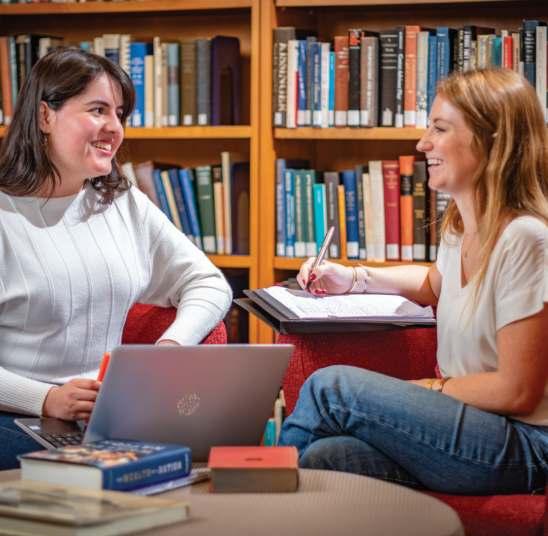
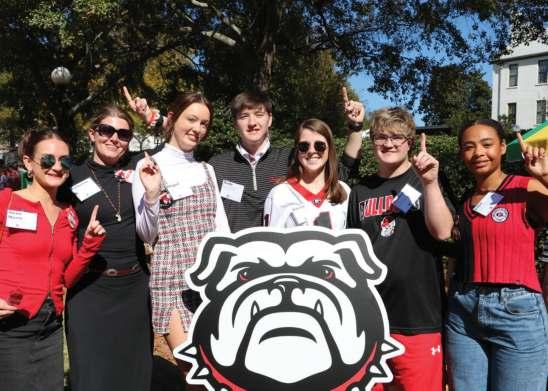
Many of these student organizations host their own conferences, community service opportunities, and major events, allowing students to develop leadership skills and build their networks.
TO VIEW A LIST OF ALL STUDENT ORGANIZATIONS, VISIT www.law.uga.edu/georgia-law-student-organizations
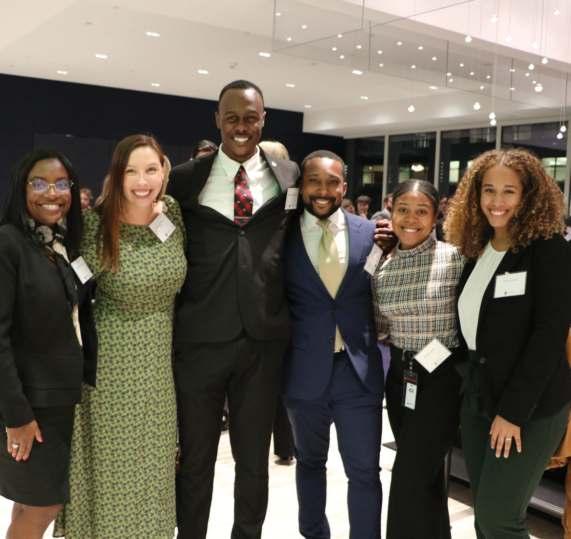
Through our mentorship program, we connect entering students with a faculty member, career development advisor, upper-level law student, and graduate or friend of the law school. As a result, we are fostering relationships that extend far beyond the classroom and often translate into employment or new learning opportunities.

What led to your decision to attend UGA Law?
I decided to attend the UGA Law after completing my undergraduate degree here. During this time, I fell in love with the city of Athens and the amazing group of students who made me feel at home on campus. During my time here, I have tried to say yes to as many things as possible during my collegiate career, and I have loved every second of it.
UGA’s community is home to some of the most supportive, intentional individuals I have ever known. I have never once felt out of place so I hoped that characteristic would also be present in the law school community. I can confirm that my expectations were surpassed and confidently say that I would not have wanted to go to school anywhere else.
What has your time here been like so far?
I have connected with the law school community by immersing myself in opportunities to serve alongside my classmates. I am a Student Bar Association (SBA) member and serve as a Dean’s Ambassador. Serving in these organizations is an invaluable experience that reminds me that I am here for more than just a degree, but also to make long-lasting connections with my peers.
In Fall of 2024 I will intern at the United States District Court for the Northern District of Georgia. This experience will provide me with exposure to a wide range of legal practice areas while also allowing me to refine my legal research and writing skills. Coincidentally, my favorite classes have been Legal Research and Legal Writing.
What tips would you give to someone considering UGA Law?
Remember to enjoy the journey, and give yourself grace along the way. What matters most about choosing a law school is the support system that you are surrounded with when those challenges do come. UGA Law has connected me with people who have taught me how to better love myself, and that is something that I cannot repay. Those people are what make this school so great beyond just the academics alone.
Find a school that supports a healthy work-life balance by offering extracurricular opportunities for hobbies, exercise, and socialization. UGA Law is intentional about prioritizing both personal and academic growth, making concerted efforts to support holistic health during the school year. This place reminds you to celebrate your successes, no matter how small they may seem, and encourages you to keep showing up authentically as yourself.

Located in northeast Georgia, Athens has grown alongside the University of Georgia and its students for the past two centuries.
The Classic City, as it is known, combines southern charm and great weather with a progressive atmosphere and a rich art, music and intellectual culture. While life as a law student is busy, Athens offers many opportunities for a study break just a short walk from campus. The law school is located in the heart of historic North Campus, adjacent to downtown’s local restaurants and quirky shops. The area’s entertainment offerings rival those of much larger cities, and a plethora of activities and events cater to a student’s budget.
Law students might find themselves reading outside on North Campus on a crisp fall day or expending boundless spirit with 93,000 loyal fans cheering the Bulldogs to

victory in the famous Sanford Stadium. Others work out in the Ramsey Center, a state-of-the-art fitness facility, or blow off steam kicking around on the intramural fields or running track. Students meet friends at a local pub or a concert venue, grab a coffee in the historic Five Points neighborhood, browse the local shops downtown, or take a relaxing stroll through the State Botanical Gardens. Athens is not far from several bustling metropolitan areas in the Southeast, including Atlanta, Greenville, and Chattanooga, making it a tourist destination for many.
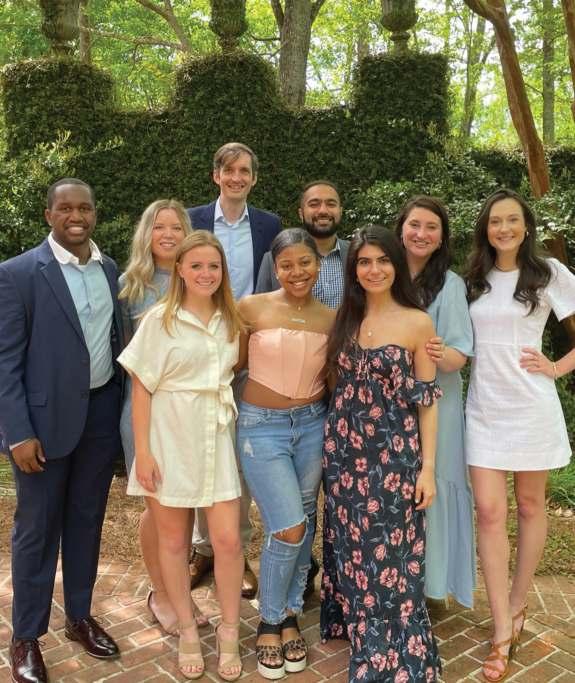


Law school is a rigorous academic commitment, but in Athens students find a supportive environment with spectacular restaurants, local coffee shops, numerous festivals, a well-rounded music scene, and affordable housing.

“Life as a student at the School of Law was amazing. Less than a five minute walk downtown, there are always fun, affordable activities to do every day with your friends. I consider Athens as a home away from home.”
Marcol Harvey (J.D. ’18)
Associate, Gordon Rees Scully Mansukhani, LLP
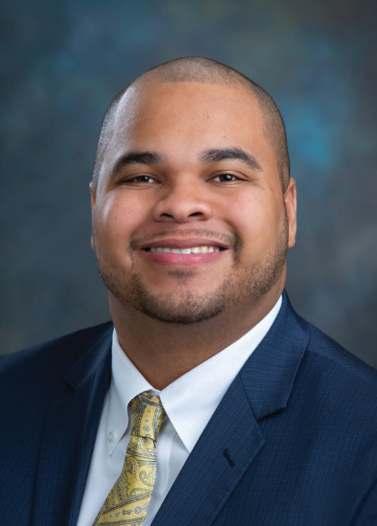
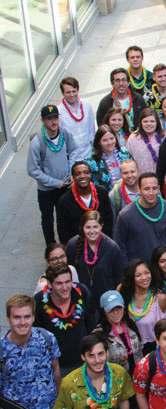

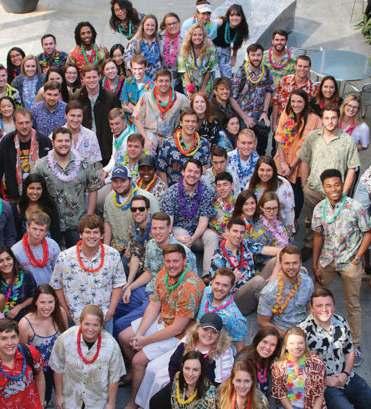
See what the University of Georgia School of Law has to offer by contacting an Admissions Director at 706-542-7060.
FOR MORE INFORMATION ABOUT HOUSING, DINING, AND THINGS TO DO IN ATHENS, PLEASE VISIT http://www.law.uga.edu/schedule-visit or visit https://info.law.uga.edu/
Can’t make it to Athens? Participate in an online tour at georgialaw.university-tour.com. Our interactive map includes photos, videos and 360° views.







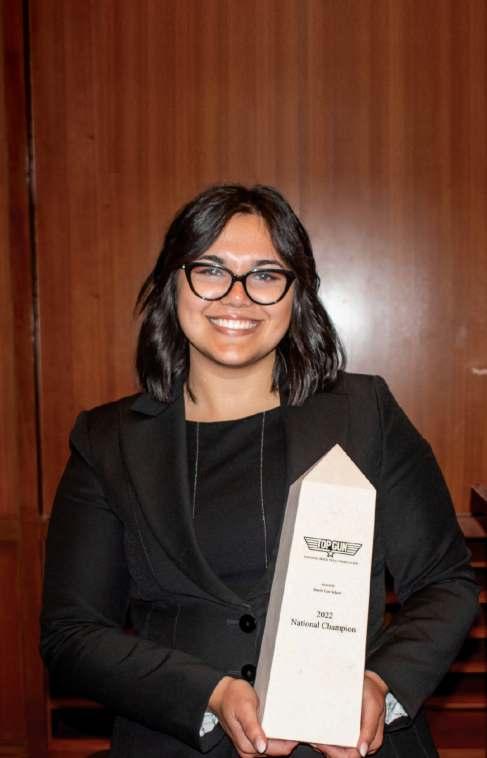
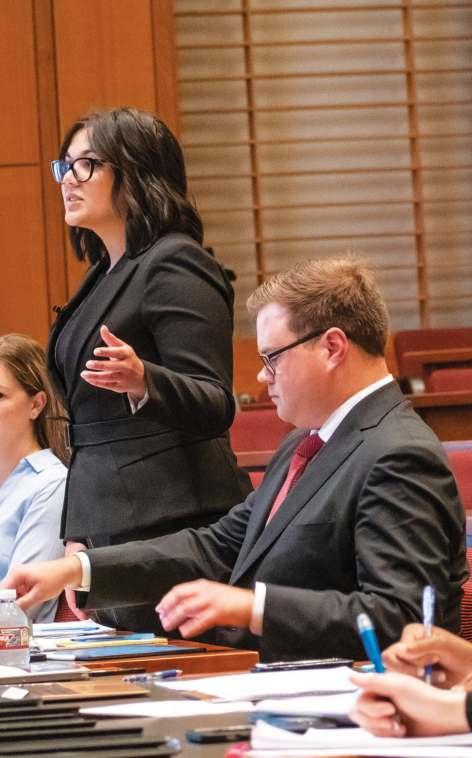
“Participating in the Moot Court and Mock Trial teams at UGA Law prepared me to be both a confident advocate and a precise writer. I learned how to boil down complex arguments in an easy to digest roadmap, a skill I use today in practice. I understand how to go through evidence, analyze its admissibility, and develop an oral argument for its potential exclusion. My advocacy experience also helped me to have the confidence to stand in front of judges, senior attorneys, and opposing counselors without losing my mind! The Advocacy Teams at UGA Law have been invaluable to my career.”
Nia Nzinga Norwood (J.D. ’23)
Assistant Attorney General, Honors Fellow
of the Attorney General

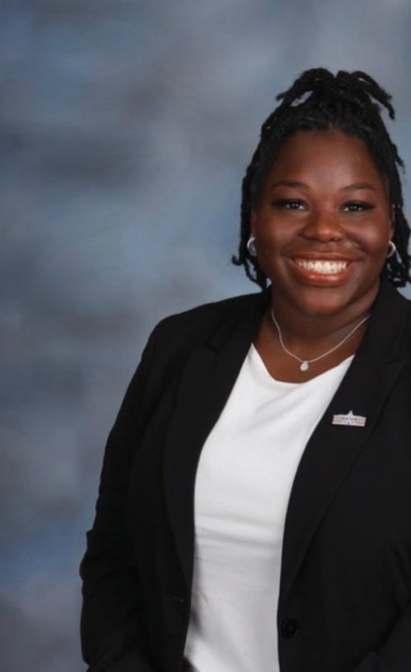


The University of Georgia School of Law’s accomplished Moot Court and Mock Trial programs have amassed 11 national, 12 regional, and 2 state titles over the last five years. These programs focus directly on developing critical oral and written advocacy skills that will withstand the intense scrutiny of a court or jury. Through this incredible practical skills experience, our law students become powerful advocates.
Participating on a Moot Court team provides our students the opportunity to draft briefs and present oral arguments, appear before federal and state jurists, and travel to local, regional, national and international competitions. Our Moot Court program is supported by dedicated faculty members and Moot Court alumni and alumnae who volunteer to judge practice rounds of oral arguments.
Members of the law school’s Mock Trial teams deliver opening statements, conduct witness examinations and present closing arguments in the presence of a judge and jury. The Mock Trial program receives strong support from faculty members and Mock Trial alumni and alumnae who dedicate long hours to bench practice rounds, critiquing student arguments and offering suggestions for improvement. This level of support truly benefits our students and helps them to develop the courtroom skills they will need during their legal careers.
TO LEARN MORE ABOUT THE WINNING HISTORY OF MOOT COURT AND MOCK TRIAL TEAMS, VISIT www.law.uga.edu/advocacy
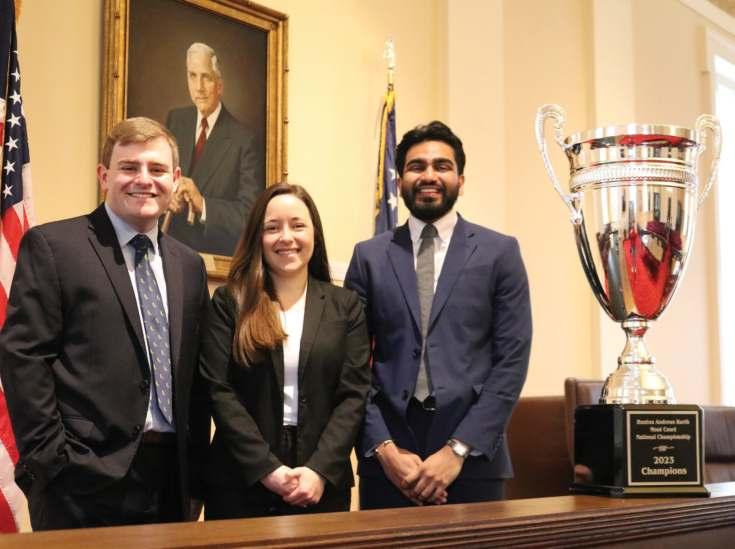
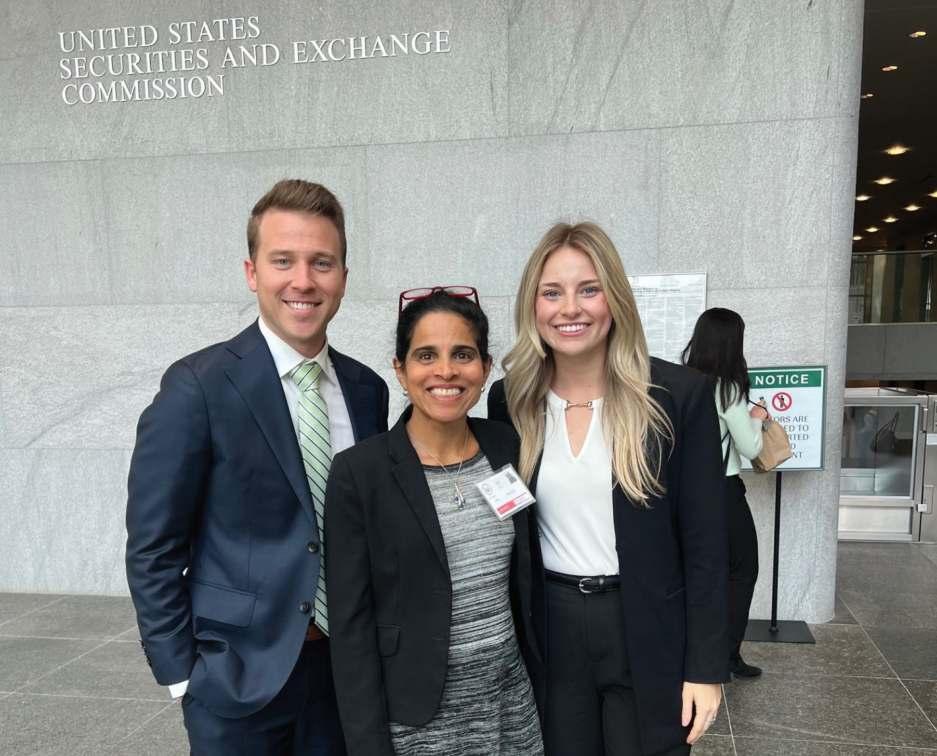
The University of Georgia School of Law’s Business Law and Ethics Program provides our students significant opportunities to study and engage with the legal concepts and ethical issues confronting attorneys and business leaders in today’s dynamic and global economy. The program includes traditional doctrinal courses, practice-based courses that link legal theory to the practice of law, and experiential learning opportunities such as the Business Law Clinic and Corporate Counsel Externship. These experiential learning opportunities, together with our negotiations team, have a particular focus on transactional practice and are a key element of the program. In and out of the classroom, our students practice essential skills such as negotiation, contract drafting, critical thinking, counseling, and creative problem-solving. As students practice these skills, our Business Law and Ethics Program maintains a strong emphasis on business ethics, particularly with respect to the attorney’s role in advising business clients.
The Corsair Law Society is an organization for high achieving students at the School of Law who are interested in pursuing careers in business law. The Society seeks to leverage the law school’s national presence to provide students with career opportunities across the country. A network of alumni, alumnae, and friends of the law school in cities throughout the United States serve as advisers and advocates for these students. Students also engage in discussions and learning opportunities with law students, business students, and professionals to enhance their understanding of corporate legal matters.
TO LEARN MORE, VISIT
www.law.uga.edu/business-law-and-ethicsprogram
The Negotiation Team represents the University of Georgia School of Law at regional and national competitions in dealmaking and dispute resolution. Students join the team through a selective process that includes an intramural competition held every Fall.
Negotiating simulated deals and disputes, team members develop fundamental advocacy and counseling skills for collaborative and competitive settings. Training is experiential and focuses on practical skills grounded in fields that include game theory, alternative dispute resolution, influence, persuasion, behavioral economics, and psychology.
TO LEARN MORE, VISIT www.law.uga.edu/negotiation-transactionalcompetitions
Legal journals provide students the opportunity to enhance legal writing skills beyond the classroom experience. Our students publish four highly regarded journals:
• Georgia Criminal Law Review
• Georgia Law Review
• Georgia Journal of International & Comparative Law
• Journal of Intellectual Property Law
These journals, which are frequently cited by federal and state courts, textbooks, treatises and other law reviews, follow the customary format with articles from leading scholars and practitioners comprising the bulk of the content and another section consisting of student notes. Our journal participants can receive academic credit. Previous journal members have gone on to clerk for members of the federal judiciary, practice with the most respected firms in the nation, distinguish themselves in public service, and lead businesses.
TO LEARN MORE, VISIT www.law.uga.edu/journals
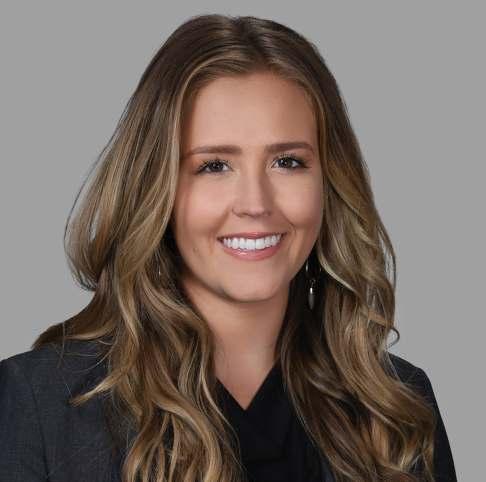
“The Negotiation Team taught me practical skills that I continue to use every day in my legal career. The competitions exposed me to complicated transactions where I was able to further develop both my drafting and negotiating skills. My time on the team was an invaluable experience that will continue to shape my legal career for years to come.”
Meggie Willinger (J.D. ’21)
Associate at Paul, Weiss, Rifkin, Wharton & Garrison LLP
Christopher M. Bruner, Stembler Family Distinguished Professor in Business Law & Faculty Co-Director of the Dean Rusk International Law Center, speaking with students in the Center’s Louis B. Sohn Library on International Relations.
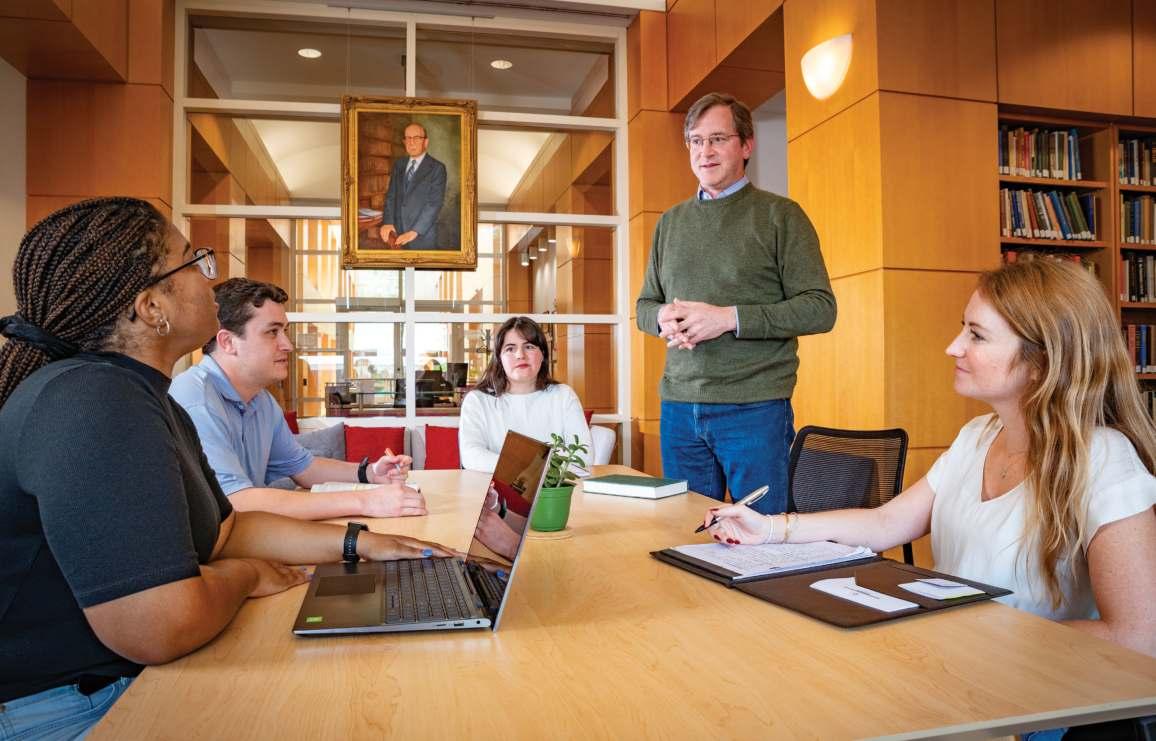
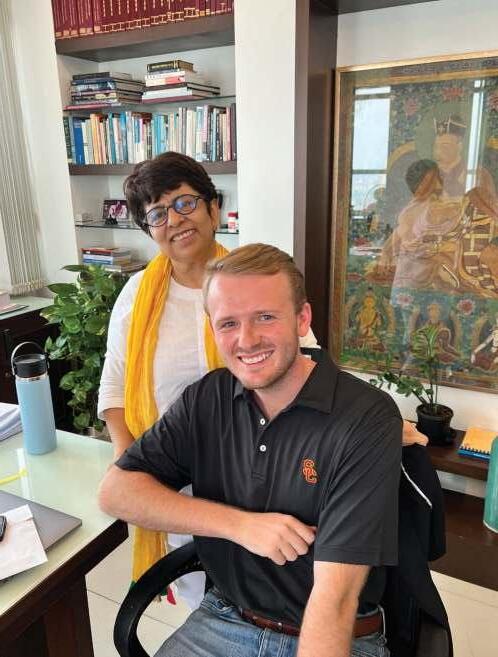
Matthew Philips (J.D. ’24) sits with Priti Suri (LL.M. ’89) at PSA Legal in New Delhi, India, where Philips completed a Global Externship Overseas during his 2L summer. Suri is the Founding Partner and owner of PSA Legal.
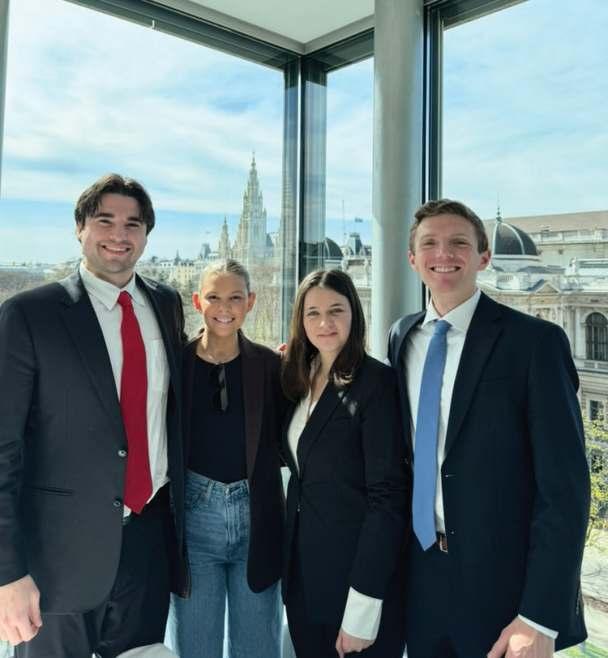
The 2023-2024 Vis Moot team in Vienna, Austria: Olha (“Olia”) Kaliuzhna (LL.M., ’23, J.D. ’25), Patrick Smith (J.D. ’25), Jacob (“Jake”) Wood (J.D. ’25), and Tiffany Torchia (J.D. ’25).
Named after the former U.S. Secretary of State who taught at the School of Law in the last decades of his career, the Dean Rusk International Law Center has served since 1977 as a nucleus for global research, education, and service. Through its Global Practice Preparation and International Professional Education initiatives, the Center:
• Offers world class preparation for 21st century practice through an extensive international and transnational law curriculum, advocacy moots, study abroad, and hands-on global externships at home and overseas.
• Hosts foreign-trained lawyers who earn the year-long Master of Laws (LL.M.) degree, visiting scholars who conduct research, and international judges and practitioners who undertake continuing legal education.
TO LEARN MORE, VISIT www.law.uga.edu/ruskintl
Partners in the Center’s efforts include:
• Georgia Journal of International & Comparative Law
• Global Atlanta
• World Affairs Council of Atlanta
• Atlanta International Arbitration Society
• International Law Society
• American Society of International Law
• American Branch of the International Law Association
• Philip C. Jessup International Law Moot Court
• North Atlantic Treaty Organization, Supreme Allied Command Transformation
• World Affairs Council of Atlanta
• Willem C. Vis International Commercial Arbitration Moot
• United Nations Academic Impact
• Leuven Centre for Global Governance Studies, University of Leuven, Belgium
• Bar-Ilan University, Faculty of Law, Israel
• O.P. Jindal Global University, Law School, India
A partnership with the Leuven Centre for Global Governance Studies, located at one of Europe’s top research universities and close to many European capitals, continues our decades-old tradition of summer study in Belgium.

• Courses in international, comparative, transnational, and foreign affairs law, taught by professors acclaimed for their scholarship and global service
• Study abroad in Leuven, Belgium, and The Hague, Netherlands, full-time externship placements with NATO, as well as Global Externships at offices throughout the world
• Involvement in high-level conferences and closed-door experts’ workshops on cutting-edge global issues, sponsored by the Dean Rusk International Law Center
• Advocacy training via the Philip C. Jessup International Law Moot Court and the Willem C. Vis International Commercial Arbitration Moot competitions
• Service on the Georgia Journal of International & Comparative Law, one of the first American journals in the field, or in the International Law Society
• Scholarly research using an extensive law library collection, which includes the Louis B. Sohn Library on International Relations and places emphasis on human rights, business law, global governance, and intellectual property
• Foreign trained lawyers pursuing an LL.M. degree and graduate students pursuing the Graduate Certificate in International Law interact with J.D. students in classes and student organizations
• Networking with alumni and alumnae who practice on all five continents, in myriad subfields of international law and policy
• Presentations on cutting-edge scholarship by the law school’s globally recognized faculty, visiting scholars, and other experts participating in the International Law Colloquium as well as lectures and conferences on topics like the laws of war, intellectual property, international criminal justice, international arbitration, corporate sustainability, climate change, space law and international trade

Graham (J.D. ’25) spent the spring 2024 semester as a Legal Extern with NATO Allied Command ransformation (ACT) in Norfolk, VA, through a partnership between the Dean Rusk International Law and the DC Semester in Practice.

Offered in partnership with the prestigious Leuven Centre for Global Governance Studies, our Global Governance Summer School continues a fourdecade tradition of summer study in Belgium. Students explore global issues, such as trade and sustainable development, peace and security, trafficking and other crimes, intellectual property, the environment, human rights and the rule of law, and migration. The Summer School also features networking opportunities and professional development trips to leading legal institutions in Brussels and The Hague.
Students receive academic credit for enrolling in this program.
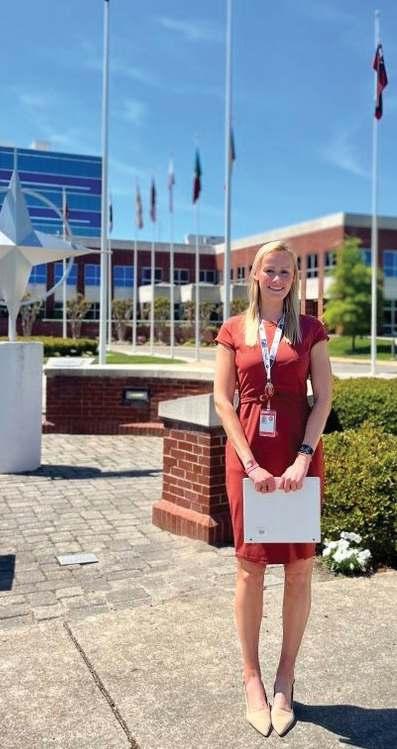
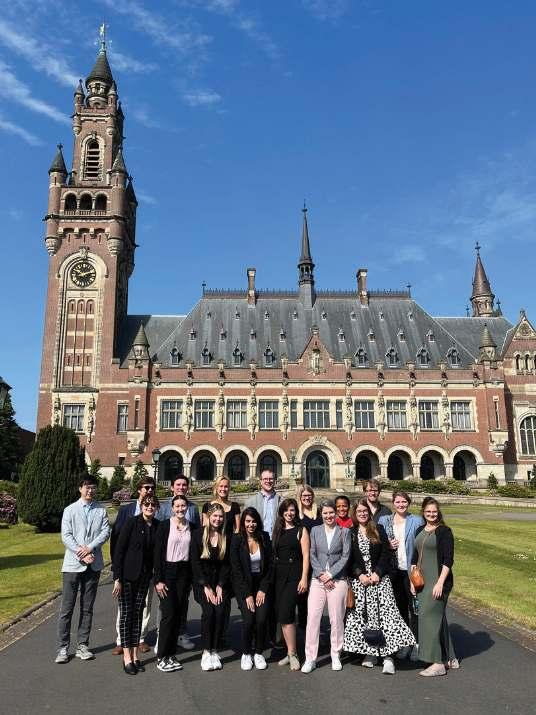
Our law students benefit from an array of opportunities for hands-on training for global practice.
| Up to 12 weeks during the summer
Students benefit from funded summer placements at in-house legal departments, nongovernmental and intergovernmental organizations, private law firms, and government offices, in scores of countries on all five continents. Additionally, a generous grant from the Halle Foundation will support six law students in semester-long externships in Germany over the next three years. Externships provide hands-on, experiential learning opportunities that are directly connected to students’ career objectives.
Complementing the Global Externship Overseas (GEO) is the Global Externship At-Home (GEA) which provides summer and semester-long international law-related externships at offices within the United States, including at the North Atlantic Treaty Organization, Supreme Allied Command Transformation in Norfolk, Virginia.
Previous Placements Include:
• Argentina: Syngenta AG
• Azerbaijan: Deloitte
• Belgium: Van Bael & Bellis
• Bermuda: Office of the Privacy Commissioner
• Cambodia: Documentation Center of Cambodia
• China: Han Kun Law
• England: Maples Teesdale LLP
• Estonia: Sorainen
• France: UNESCO
• Germany: Bodenheimer
• Ghana: Women in Law and Development in Africa
• India: MV Kini
• Italy: Freebly
• Jordan: Tamkeen Fields for Aid
• Luxembourg: Fererro
• The Netherlands: Open Society Justice Initiative
• New Zealand: Department of Conservation
• Romania: eLiberare
• Samoa: Secretariat of the Pacific Regional Environment Programme
• South Korea: SK E&C
• Spain: Araoz & Rueda
• Thailand: Boat People SOS Center for Asylum Protection
• Tunisia: Houerbi Law Firm
• Vietnam: LNT & Partners
• United Arab Emirates: Al Tamimi & Co.

J.D. students in their 2nd and 3rd year can participate in a semester-long international exchange with our institutional partner, O.P. Jindal Global University. This exchange offers students access to a wide range of international law courses and professors, as well as unique professional development opportunities. Located in Sonipat, just outside of New Delhi, India, O.P. Jindal Global University’s Jindal Global Law School is ranked the top law school in both India and South Asia by QS World University Rankings and is ranked 70th in the world for law. Students have access to the law school’s 25 research centers, which include International Trade, UN Studies, and Women, Law, and Social Change, while benefitting from immersion in India’s political center. This substantive academic and professional experience in India, an emerging global economic superpower, offers students a unique means of preparation for the globalized practice of law

“A global externship provided me with the practical legal experience and cultural immersion to build on my experiences and broaden my worldview. I was able to…learn and research about international law’s effect on business and government; gain meaningful exposure to commercial litigation and
international trademark litigation; and…develop an international network.”
Anré Washington (J.D. ’21) Associate at Andersen, Tate & Carr, P.C.

Prospective law students understandably ask questions not only about their chances of getting a job but the type of job they will receive. We strive to be an unparalleled return on investment.
A key advantage of our law school is that its relatively low tuition and the affordable cost of living helps keep the costs of attendance manageable. Relative to more expensive law schools, this broadens the range of jobs that graduates can economically manage during the early stages of their career.
Beyond being a good return on investment, a University of Georgia School of Law degree opens doors in a variety of local, national, and international careers. Our alumni work in 50 different states and D.C. and 58 different countries. For recent graduates, the State of Georgia remains the top choice for employment. Other popular markets for graduates include Colorado, Florida, New York, North Carolina, South Carolina, Alabama, Texas, and Washington, D.C.
Not only does a our law degree carry national currency, it prepares you for many different careers. While the greatest number of our graduates enter private practice (whether at large firms or small ones), many embark on different paths. The School of Law boasts an excellent record placing students in prestigious judicial clerkships where students spend one or two years assisting a judge. An increasing number of graduates go directly into business; in recent years graduates have begun work at businesses like JP Morgan Chase & Co., The Coca-Cola Company, PepsiCo, and McKesson Corporation, just to name a few. Finally, a steady number of graduates go on to serve their state and country, whether as prosecutors, public defenders, officers in the Judge Advocate General Corps or other forms of public service. Here in particular, the combination of a first-rate legal education and a good return on investment pays off – graduates can take these jobs without worrying about the crippling level of law school debt.
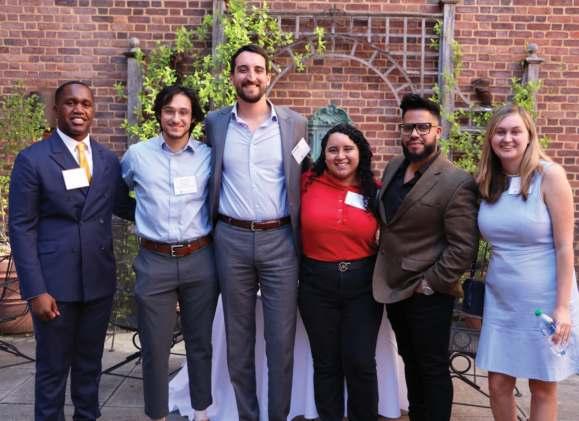
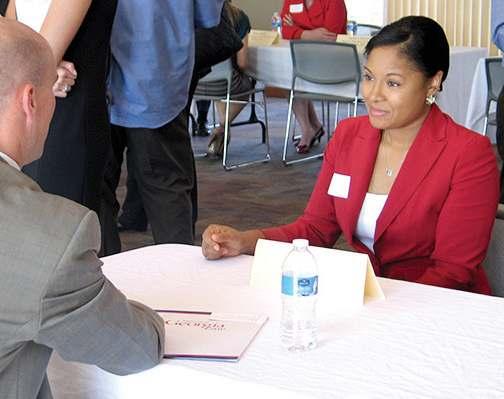
As a School of Law graduate, you are part of a global network of accomplished alumni and alumnae.
This ever-expanding, worldwide association of approximately 11,500 graduates spans the globe and regularly returns to Athens. Our graduates have served as leaders including 11 governors, more than 125 state and federal legislators, and over 90 federal judges and State Supreme Court justices to date.
FOR MORE INFORMATION, VISIT www.law.uga.edu/alumni
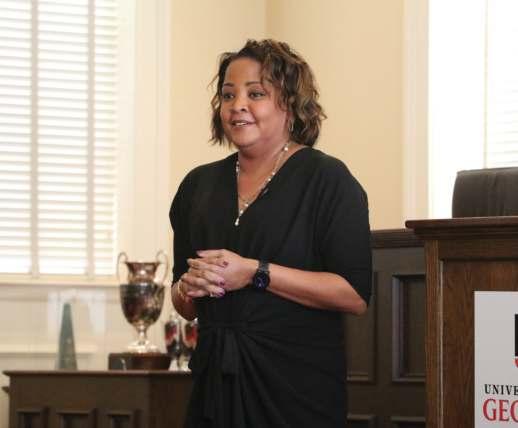
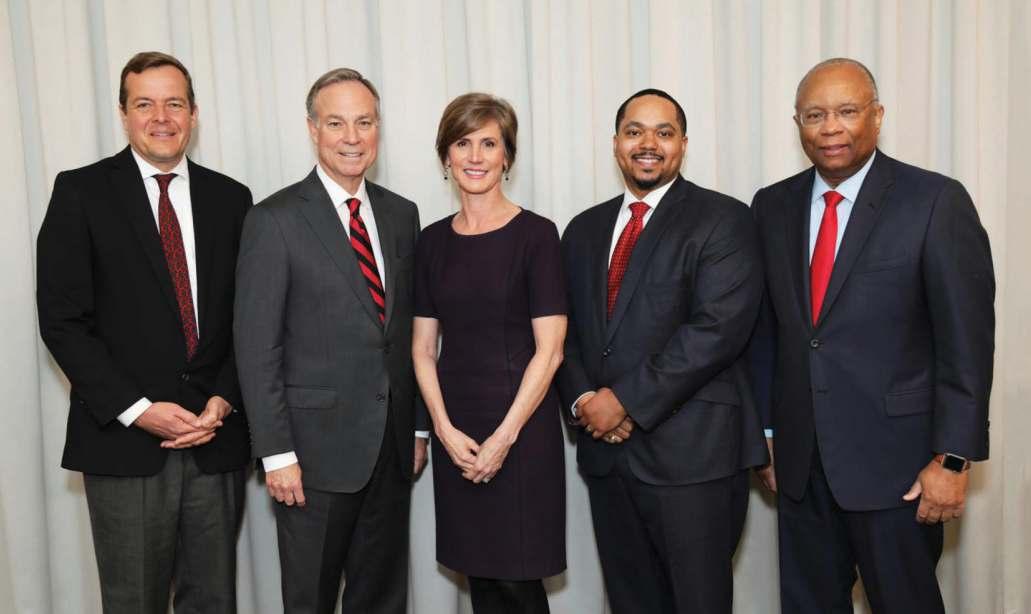


I was looking for a school with exceptional faculty, a challenging curriculum, and a strong alumni network. After researching the UGA law program, I was confident that it met all my criteria. The administration at UGA Law is committed to supporting diversity efforts in the legal profession, and I wanted to contribute to a space where I knew I could be supported. Additionally, attending a public institution that promotes financial confidence has enabled me to pursue a legal career without heavy financial burdens.
I could not be happier with my decision to attend UGA Law. By participating in clinics and externships, I was able to gain real-world experience as a future lawyer. Our career development office has connected me with legal professionals based on my career interests. The extracurricular programs were great avenues to explore my passions outside the classroom. Athens’ vibrant social scene has fostered my lifelong friendships with people from all walks of life. As a nationally ranked public institution, UGA Law is redefining what a legal education looks like. With its commitment to low debt, diversity, and building legal connections across the country, I encourage all future law students to consider what UGA law has to offer.
My time at UGA Law was a transformative experience. If I could go back and do law school again, I would not change a single thing. I have made invaluable connections not only with my professors but also with my peers and the law school staff. The rigorous curriculum prepared me to think critically and develop strong analytical skills. The administration and faculty supported me in securing a federal clerkship. Professor Casey and my advocacy coaches taught me invaluable advocacy skills for the courtroom. I was honored to lead several student organizations while in law school, building a close-knit community of colleagues and mentors. Overall, UGA law provided me with the knowledge and opportunities necessary for a successful legal career.
How do you feel about being a UGA Law Graduate and all that lies ahead?
The education I received at the University of Georgia is second to none. I am currently clerking for the Honorable Judge Willie Epps Jr., in the Western Circuit of Missouri. After clerking, I have an offer to return to a civil litigation firm in Atlanta where several UGA law alumni currently work. I am delighted to be a member of the Georgia alumni community, which has produced some of the country’s best attorneys and judges. I look forward to connecting with other leaders in the legal profession and representing my law school proudly. UGA Law is a special place, and I have never doubted my decision to call this place home for the past three years. Go Dawgs forever!
Prospective law students want both a reasonably priced legal education and clear guidance as they embark on a path to realize their professional goals. Our law school helps you achieve both by offering:
Authentic Scholarships – While scholarships offered by some law schools represent little more than “discounts” on tuition, virtually all scholarships offered by our admissions office represent true dollars donated by graduates and friends giving back to the institution to support the next generation of lawyers and leaders, whether in the form of an endowed scholarship or a gift to the Law School Fund;
Inclusive Excellence – Many of the law school’s scholarships are based on an assessment of the student’s academic achievements and potential; others, however, honor particular experiences or values such as first-generation college graduates, veterans, proven leaders or accomplished athletes.
Enduring Relationships – Our law school’s stewardship program helps to develop relationships between scholarship recipients and donors. Donors often become mentors as law graduates embark on their careers.
Over 70% of our incoming law students received scholarships. Scholarships are awarded to admitted applicants after a review of their admission files. For priority merit scholarship consideration, applications should be completed and received in the Office of Admissions by February 1, 2024. No separate application form is necessary to be considered for a School of Law scholarship.
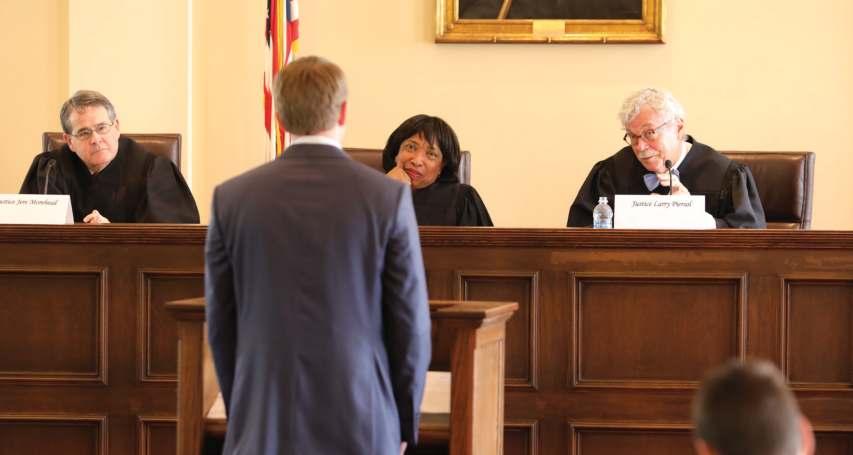
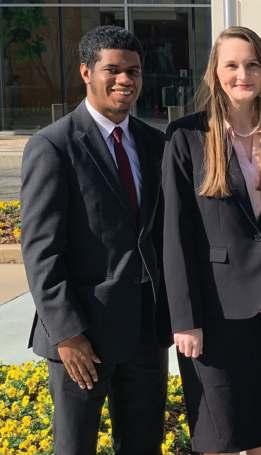
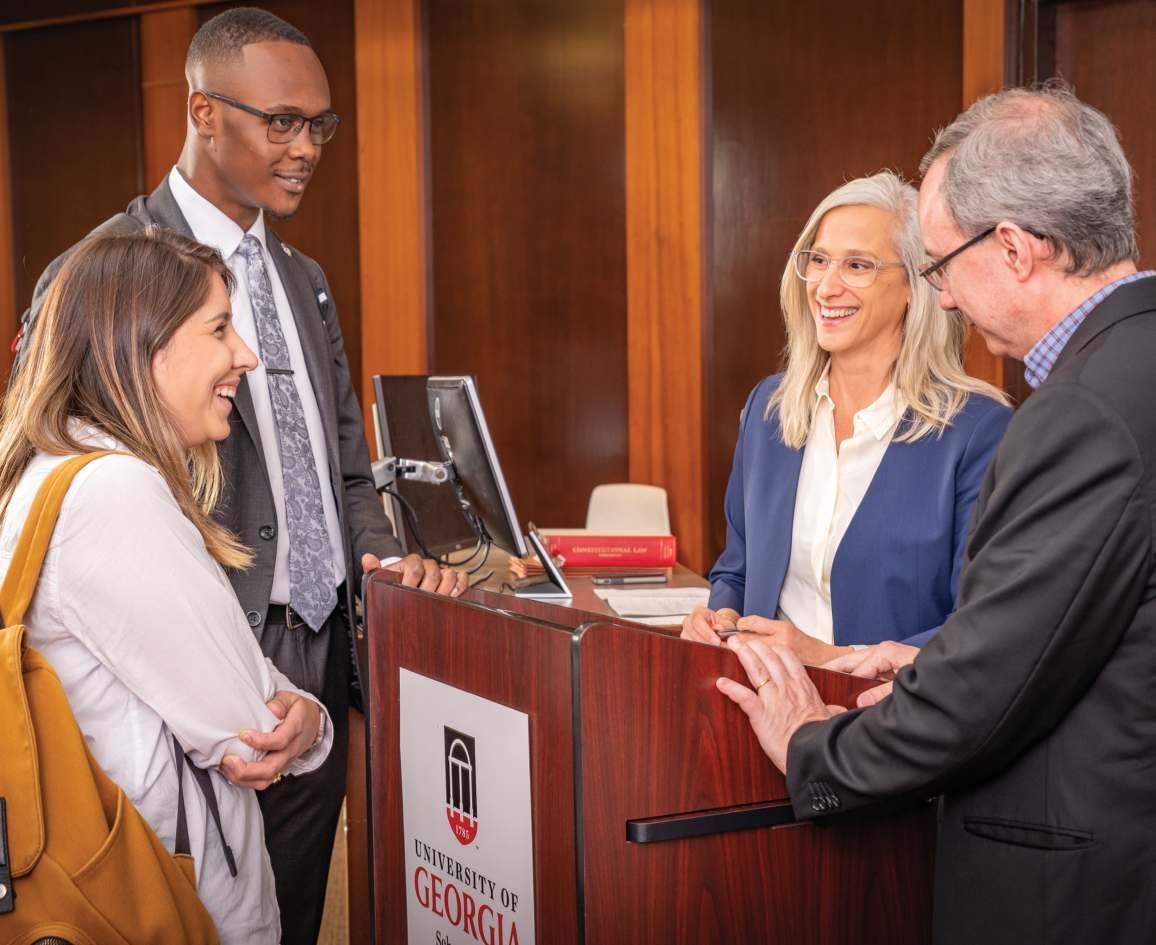
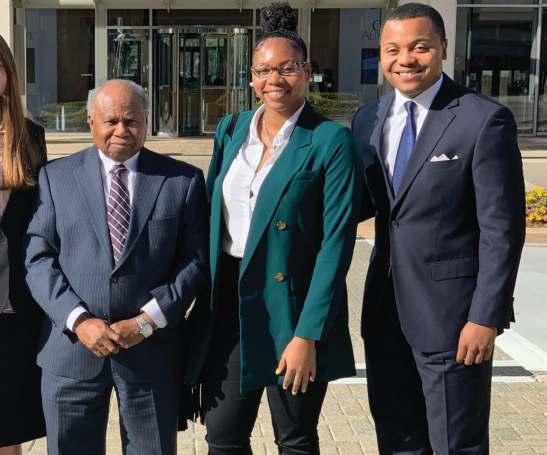
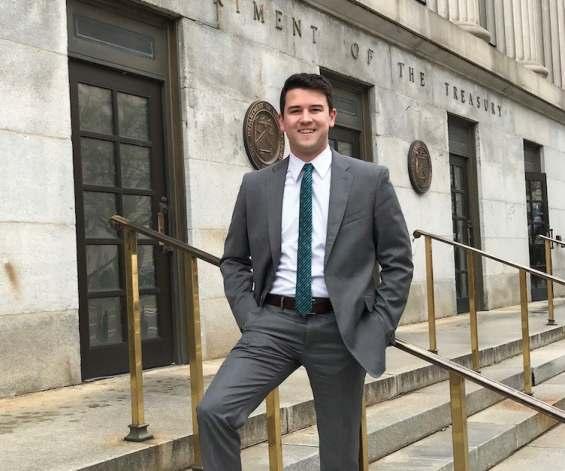
of Law Scholarships Include:
• Merit scholarship awards ranging from a few thousand dollars to full-tuition plus Distinguished Law Fellowships, which include full tuition and a professional development stipend.
• Tuition Equalization Scholarships allowing non-resident recipients to pay tuition for the first year of law school at the resident rate rather than the non-resident rate. (See Georgia Residency section on page 51 for more information on how to pay in-state rates beyond your first year.)
• Graduate Assistantships: This unique scholarship opportunity provides a full tuition wavier for all three years of law school, along with a salary earned in 2L and 3L years.
FOR MORE INFORMATION, VISIT
www.law.uga.edu/authentic-scholarships
The University of Georgia participates in the William D. Ford Federal Direct Loan Program in which eligible students borrow from the U.S. Department of Education. These loans are repaid directly to the U.S. Department of Education. All student loans are administered by the University of Georgia Office of Student Financial Aid.
FOR MORE DETAILED INFORMATION ABOUT THE DIFFERENT TYPES OF LOANS, VISIT: www.law.uga.edu/financial-assistance
The first step to borrowing federal student loans is to complete the Free Application for Federal Student Aid (FAFSA). This application is used to determine eligibility for need-based financial aid administered by the University of Georgia Office of Student Financial Aid. The application is available online at www.fafsa.ed.gov. The priority financial aid application deadline for FAFSA is December 15, 2022.
Federal loan information and application materials may be obtained by contacting the UGA Office of Student Financial Aid.
220 Academic Building Athens, GA 30602-6114 (706) 542-6147 • osfa@uga.edu • www.uga.edu/osfa
The University of Georgia School of Law is proud to be a sponsor of the Yellow Ribbon Program in support of our nation’s veterans. The program provides additional assistance to cover tuition and fees.
TO LEARN MORE, VISIT: www.law.uga.edu/school-law-veterans-services
Resident Annual Tuition
Non-Resident Annual Tuition*
$18,044
$38,180
Out-of-Country Tuition $38,908
Annual Fees
$1,416
*It is possible for non-residents to pay tuition at the resident rate by the beginning of the second year of law school. In addition the Law School offers some tuition reduction scholarships that allow non-residents to pay the resident tuition rate for one or two semesters of the first year of law school.
Georgia Resident, On-Campus
Georgia Resident, Off-Campus
Non-Resident, On-Campus
Non-Resident, On-Campus
Books & Supplies
Room & Board
Transportation
Personal Misc. Expense
Many students become Georgia residents for tuition purposes after the first year of law school. If you enroll as a non-resident and you are an independent student, you may be classified as in-state for tuition purposes if you demonstrate by clear and convincing evidence that you have established a domicile and legal residence in Georgia.
FOR MORE INFORMATION, VISIT www.law.uga.edu/georgia-residency
$36,964
$42,246
$57,708
$62,990
$1,016
$11,672 (on-campus)
$15,944 (off-campus)
$2,080
$3,344 (on-campus)
$4,354 (off-campus)
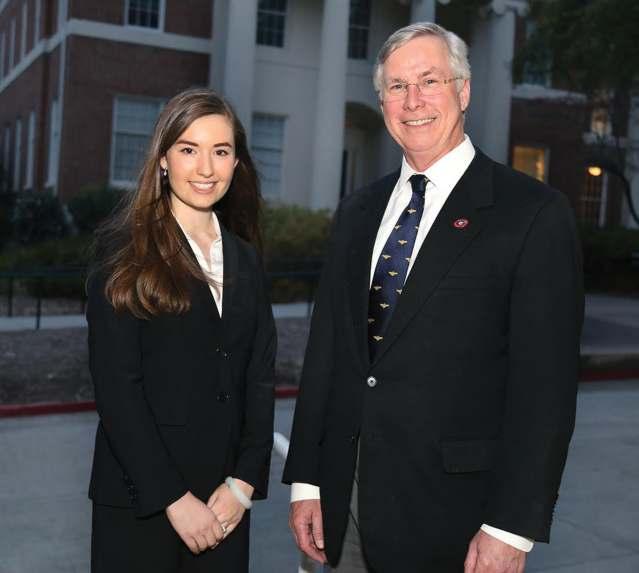
Apply beginning September 1, 2024 at www.lsac.org
A completed School of Law application must be received by the School of Law Office of Admissions by June 1, 2025, in order to be considered for admission to the 2025 entering class. All supporting materials must be received by the School of Law Office of Admissions by June 30, 2025. The University of Georgia School of Law will accept both the Law School Admissions Test (LSAT) or the Graduate Record Examination (GRE). If an applicant has both scores, the LSAT score must be reported.
For priority merit scholarship consideration, applications should be completed and received in the Office of Admissions by February 1, 2025.
LSAT Dates
September 1, 2024–June 1, 2025:
Applications accepted for the Class of 2027 on www.lsac.org
December 1, 2024: Early Decision application submission deadline
February 1, 2025:
Application submission deadline for priority merit scholarship consideration
Application Dates GRE
Information on the GRE can be found at www.ETS.org
APPLICATIONS FOR THE CLASS OF 2027 MUST BE SUBMITTED BY JUNE 1, 2025. www.law.uga.edu/how-apply
August 7-10, 2024
September 4-7, 2024
October 1-5, 2024
November 6 & 7, 2024
January 15-18, 2025
February 7 & 8, 2025
April 10-12, 2025
June 4-7, 2025
*The June 2025 LSAT is the last acceptable LSAT score for the 2025 entering class.
For LSAT registration information, visit Law School Admission Council (LSAC) www.lsac.org.
Register and take Law School Admission Test (LSAT) or Graduate Record Exam (GRE)
Register with LSAC Credential Assembly Service (CAS)
Request official transcripts from all college/university registrars be sent to LSAC
Request recommenders send letters of recommendation to LSAC
Order Law School Reports from LSAC
Monitor LSAC/CAS files
Submit online application through lsac.org by February 1, 2025, for priority merit scholarship consideration
Submit online application through lsac.org by June 1, 2025, final application deadline
Pay $50 nonrefundable application fee through lsac.org
Include required supplemental materials, e.g., explanations for “Yes” responses to Character & Fitness questions, resume and personal statement.
Include optional supplemental materials, e.g., optional essays.
The Early Decision process is designed for students who have considered their law school options carefully and are confident that the University of Georgia School of Law is their clear first choice. Early Decision admission is binding.
TO LEARN MORE ABOUT THE EARLY DECISION COMMITMENT PROCESS, VISIT www.law.uga.edu/early-decision-process
September 1, 2024
Application available on www.lsac.org
November 30, 2024 $500 Non-refundable Seat Deposit due
December 1, 2024 Application submission deadline
December 15, 2024 Application completion deadline
January 31, 2025 Non-refundable Deposit Due for Early Decision students admitted after mid-November

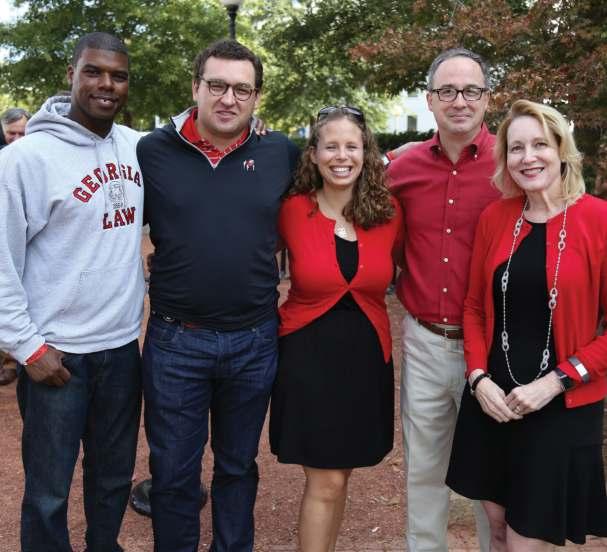
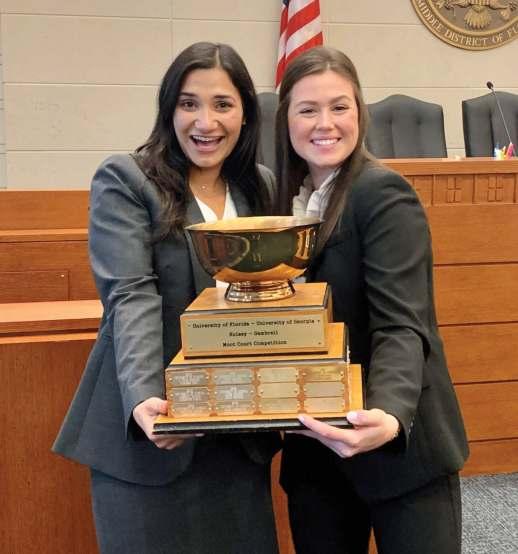
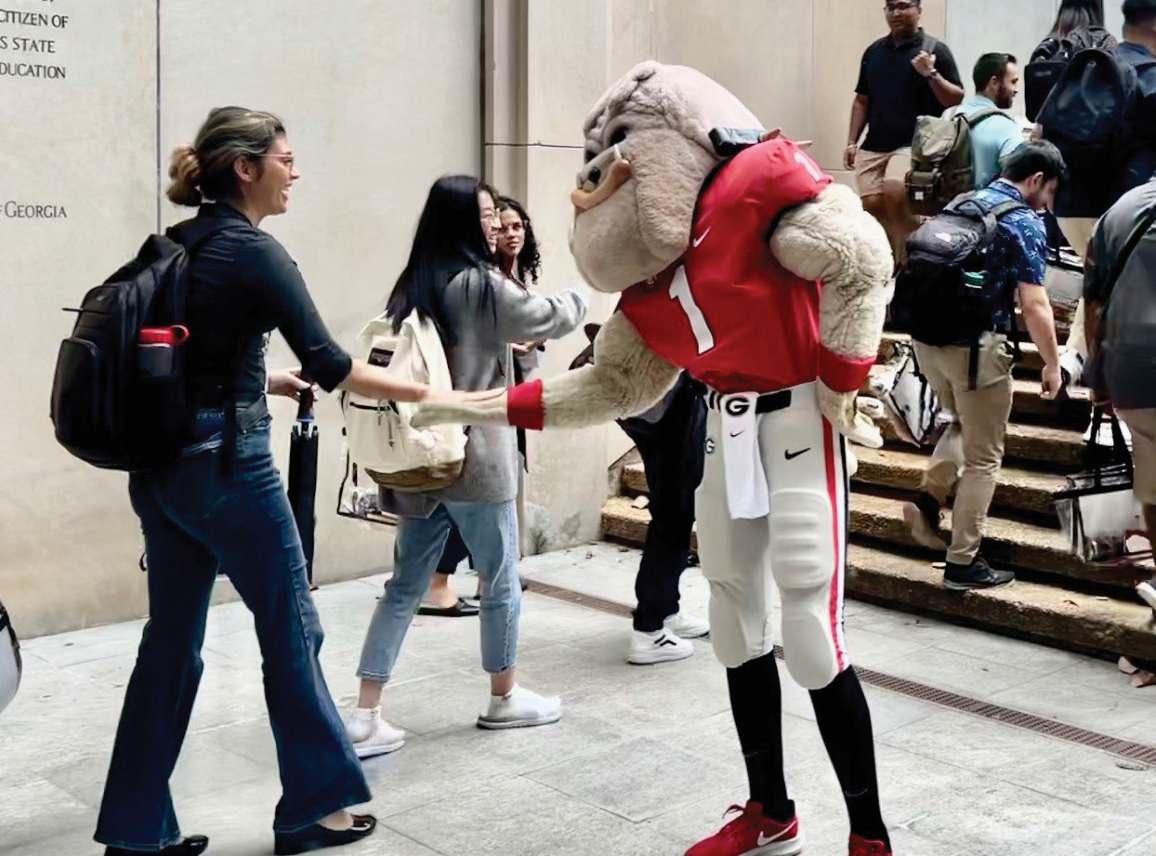

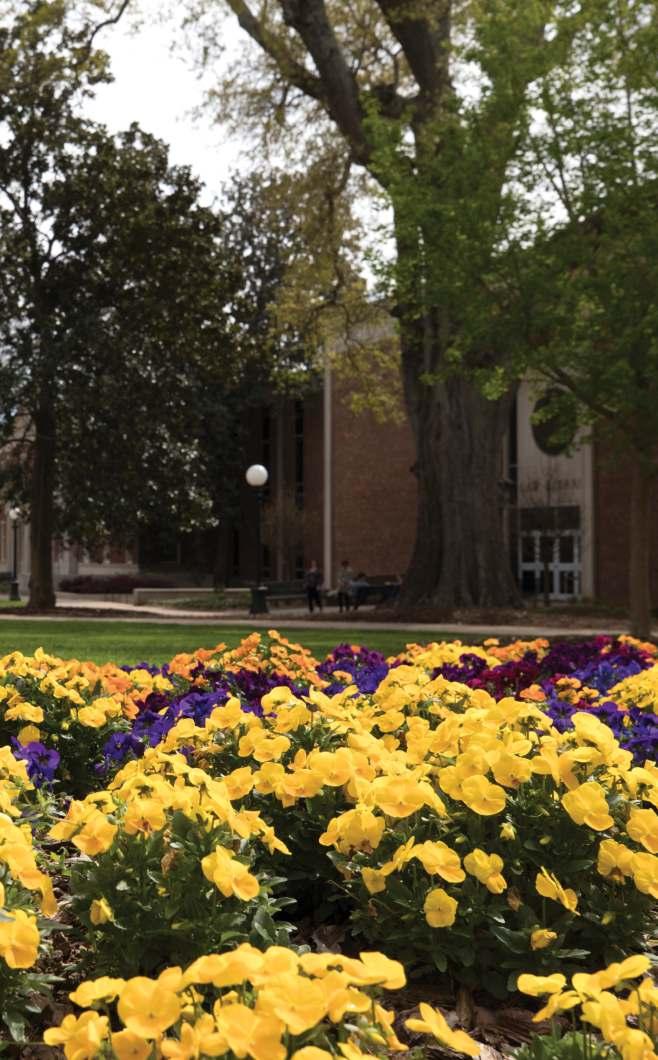
© 2024 University of Georgia School of Law.
Office of Admissions 225 Herty Drive Athens, GA 30602-6012
(706) 542-7060 ugajd@uga.edu law.uga.edu
S. Jack Hu Senior Vice President for Academic Affairs and Provost provost@uga.edu
Jere W. Morehead UGA President president@uga.edu
Peter B. “Bo” Rutledge School of Law Dean borut@uga.edu
The University of Georgia is a unit of the University of System of Georgia. The University of Georgia does not discriminate on the basis of race, sex, religion, color, national or ethnic origin, age, disability, sexual orientation, gender identity, genetic information or military service in its administrations of educational policies, programs, or activities; its admissions policies; scholarship and loan programs; athletic or other University-administered programs; or employment. Inquiries or complaints should be directed to the Equal Opportunity Office, 119 Holmes-Hunter Academic Building, University of Georgia, Athens, GA 30602. Telephone 706-542-7912 (V/TDD). Fax 706-542-2822. https://eoo.uga.edu/
The University of Georgia School of Law is approved by the Council of the Section of Legal Education and Admissions to the Bar of the American Bar Association, 321 North Clark Street, Chicago, IL 60654, 312-988-6738.